Simplification Math Worksheets with Answers
Identifying Prime Numbers
Grades: 4th Grade
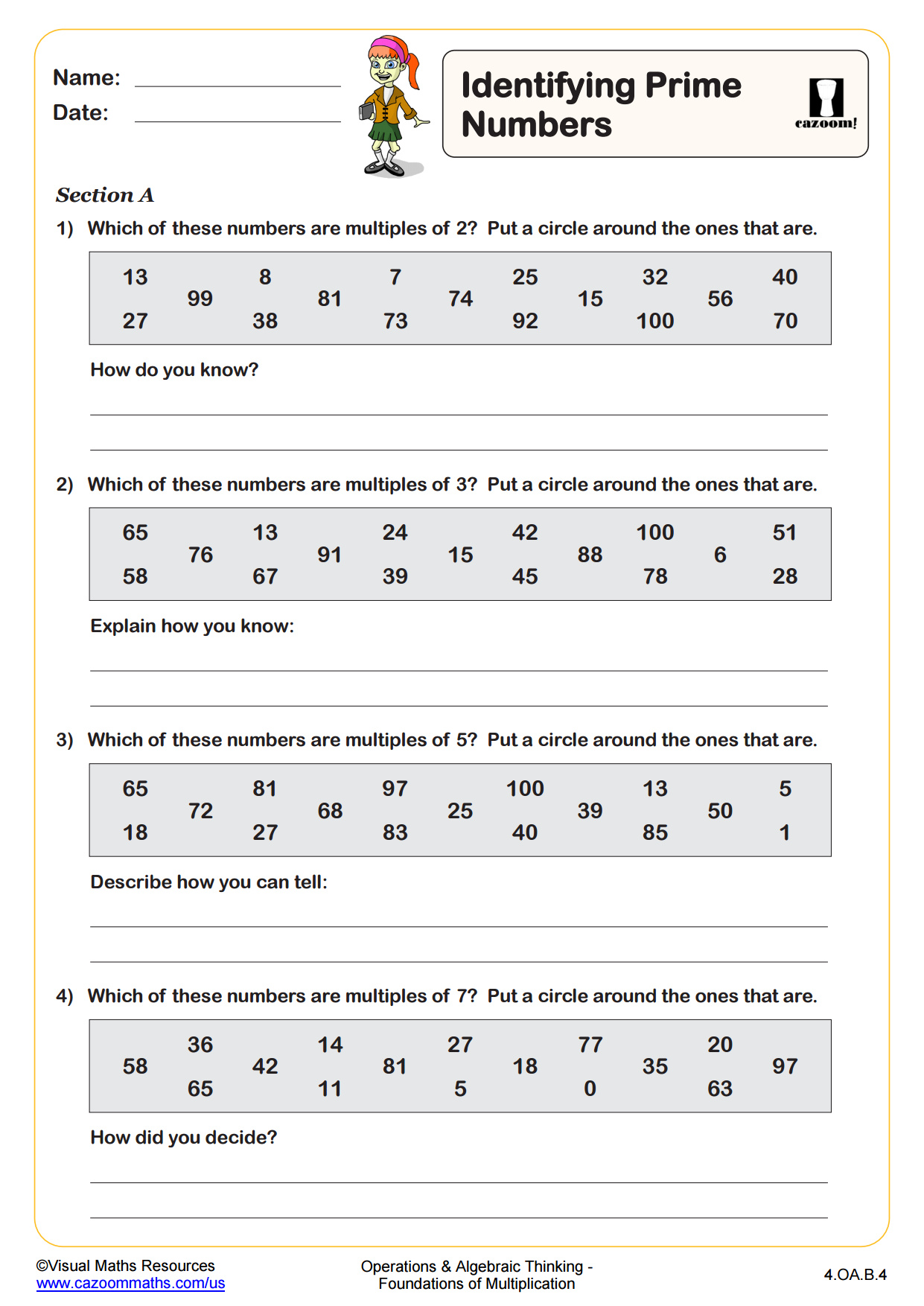
LCM (Lowest Common Multiple)
Grades: 4th Grade
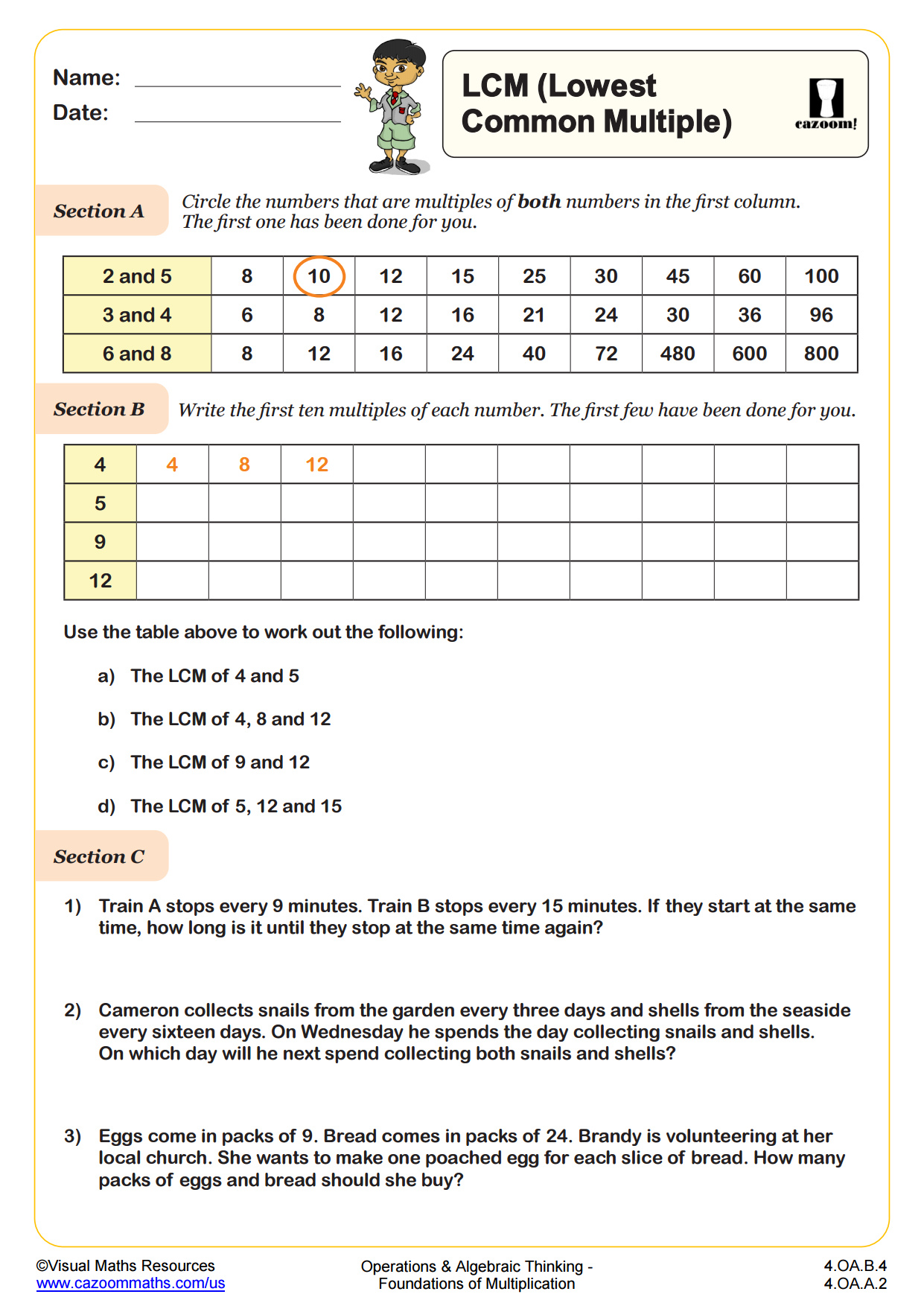
Combining Like Terms - Using Algebra Tiles
Grades: 6th Grade, 7th Grade
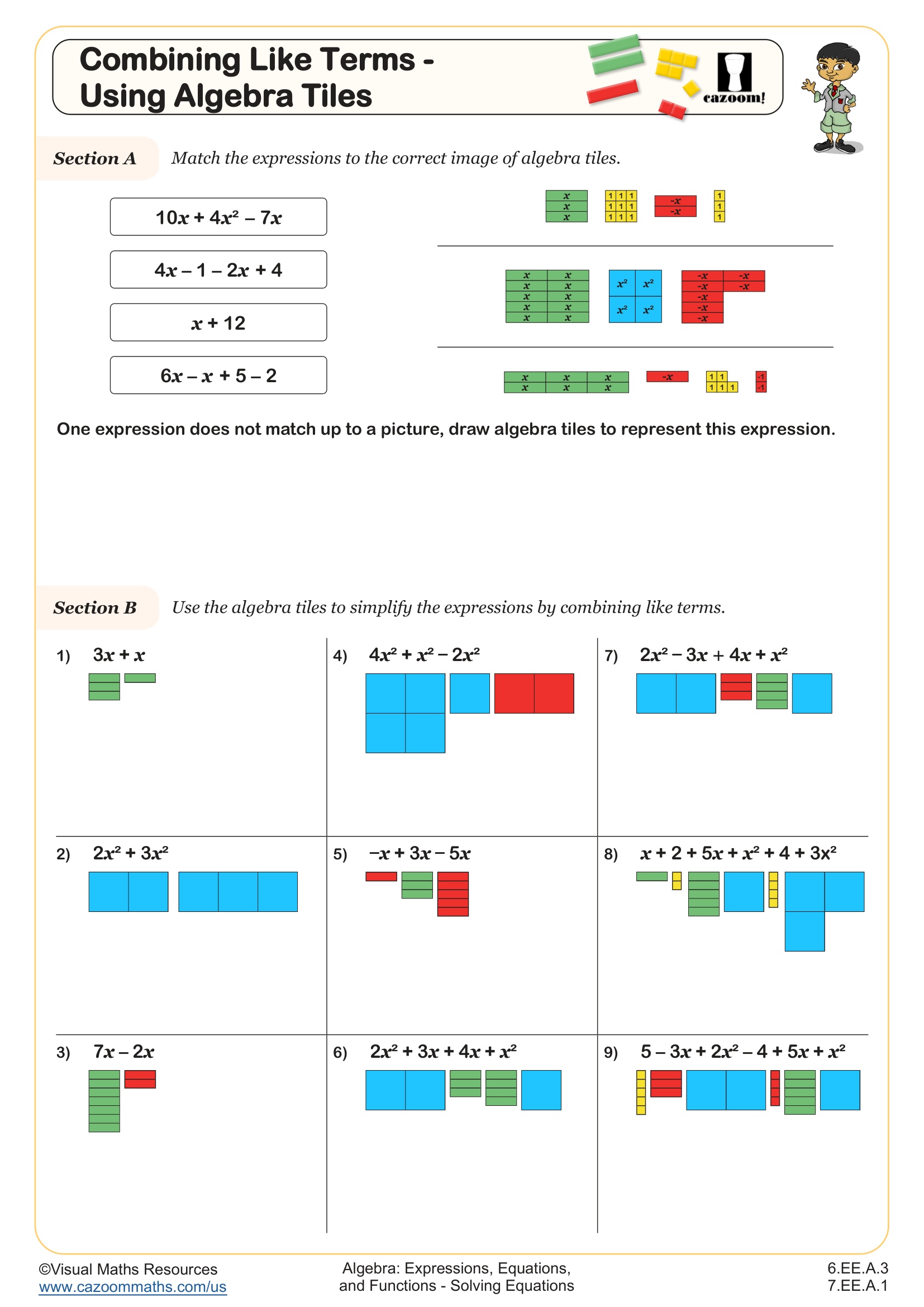
Factoring Using the Area Model
Grades: 6th Grade, 7th Grade
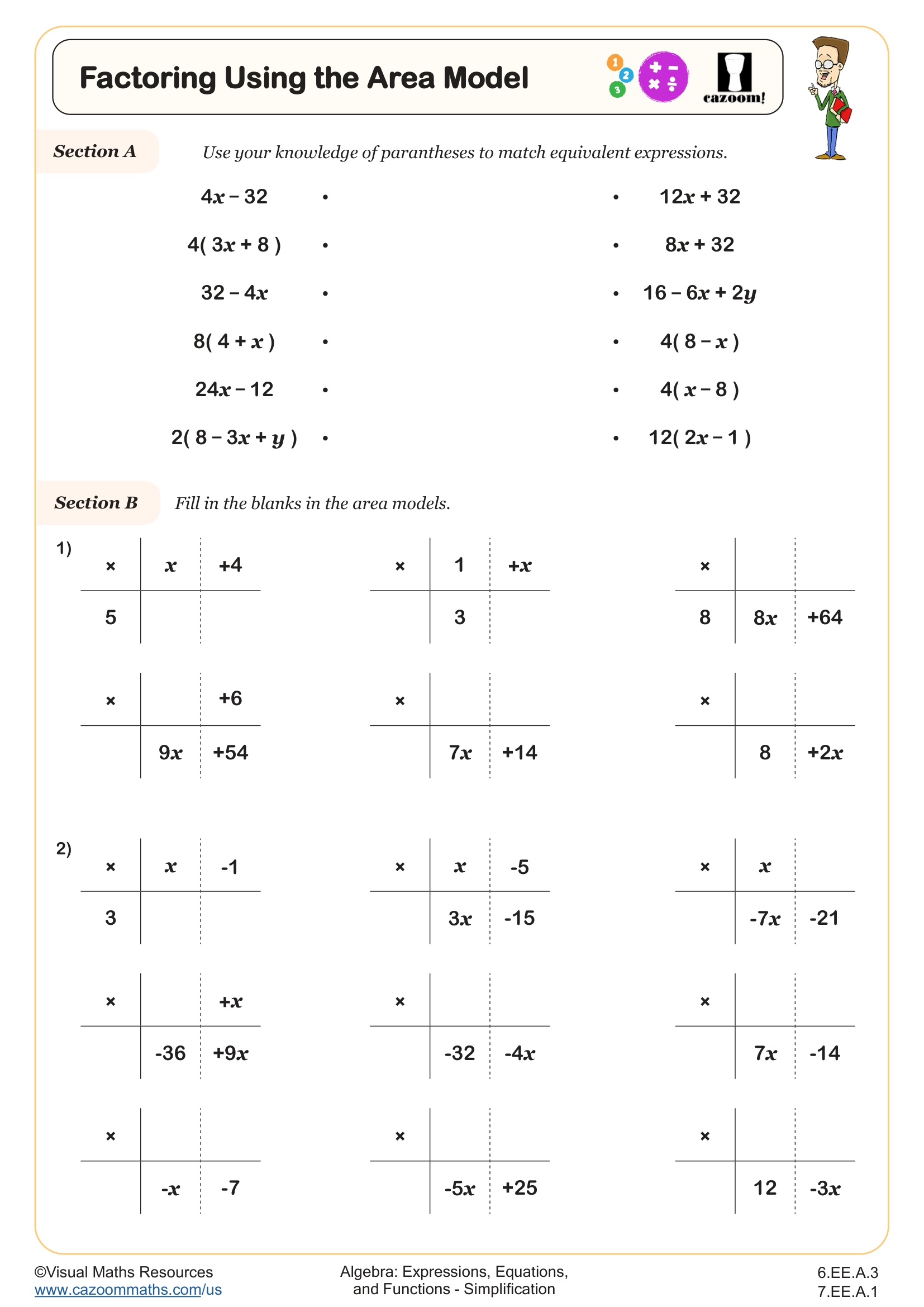
Distributive Property
Grades: 7th Grade, Algebra I
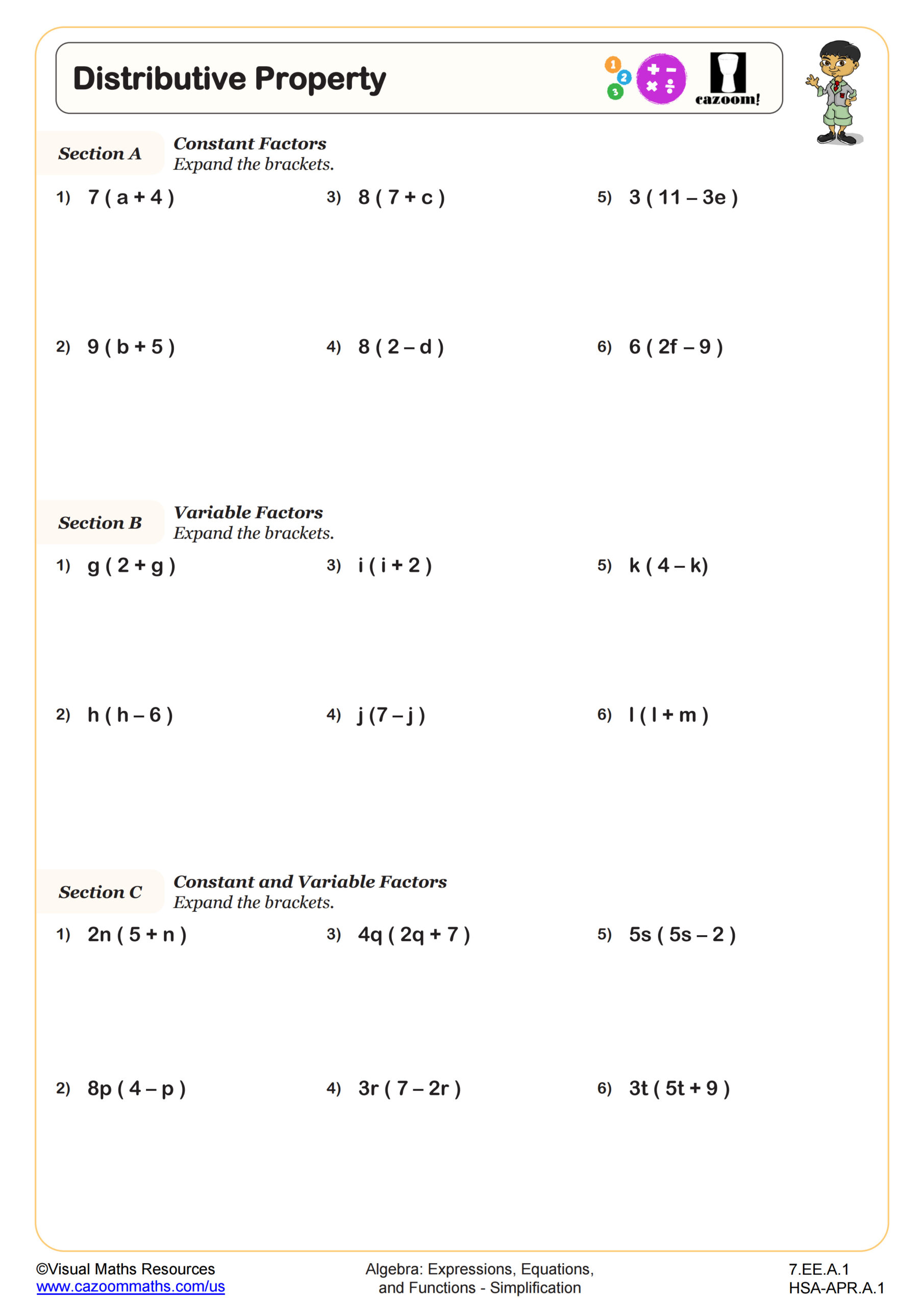
Distributive Property using the Grid Method
Grades: 7th Grade, Algebra I
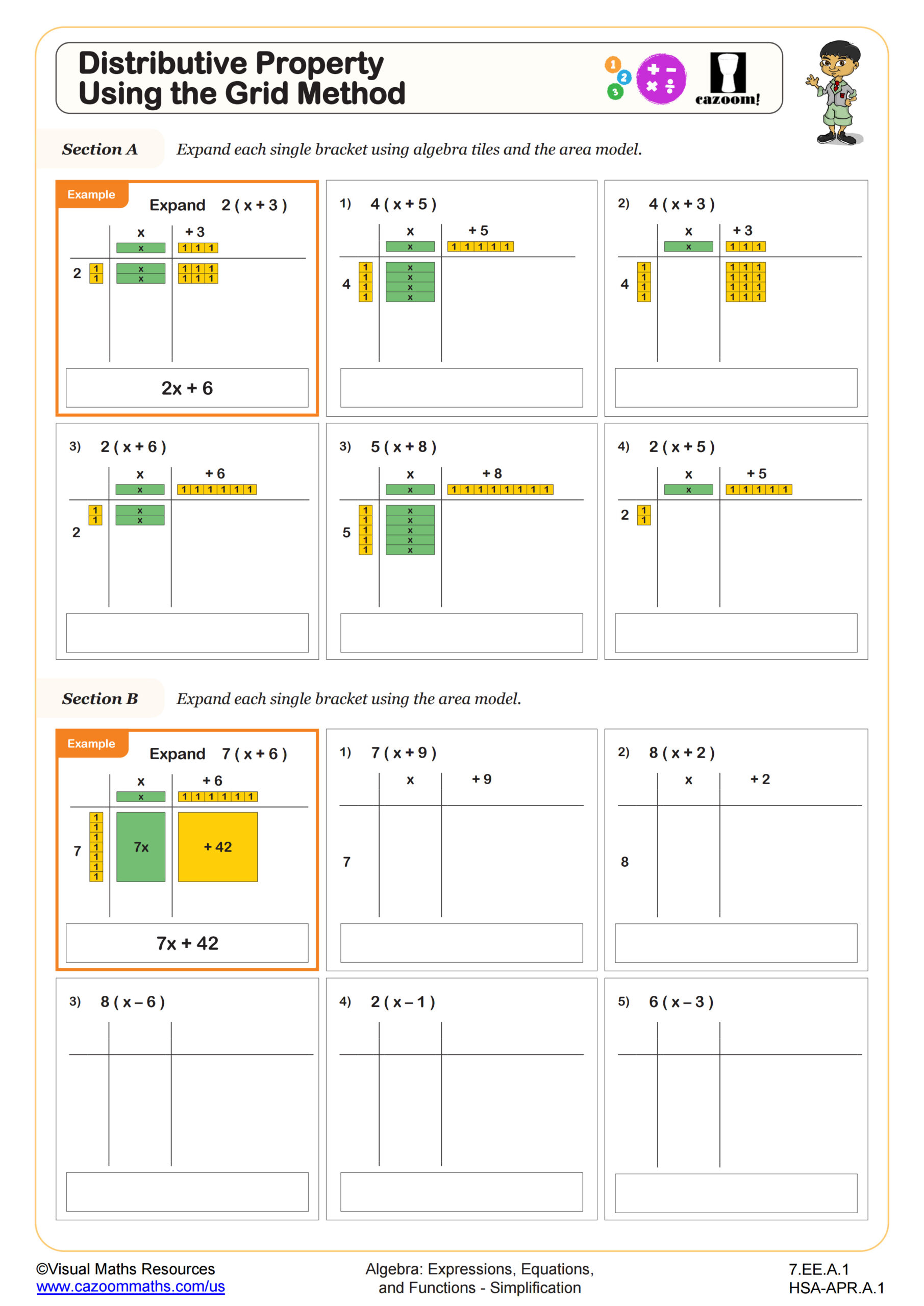
Multiplying and Simplifying Polynomials
Grades: 7th Grade, Algebra I
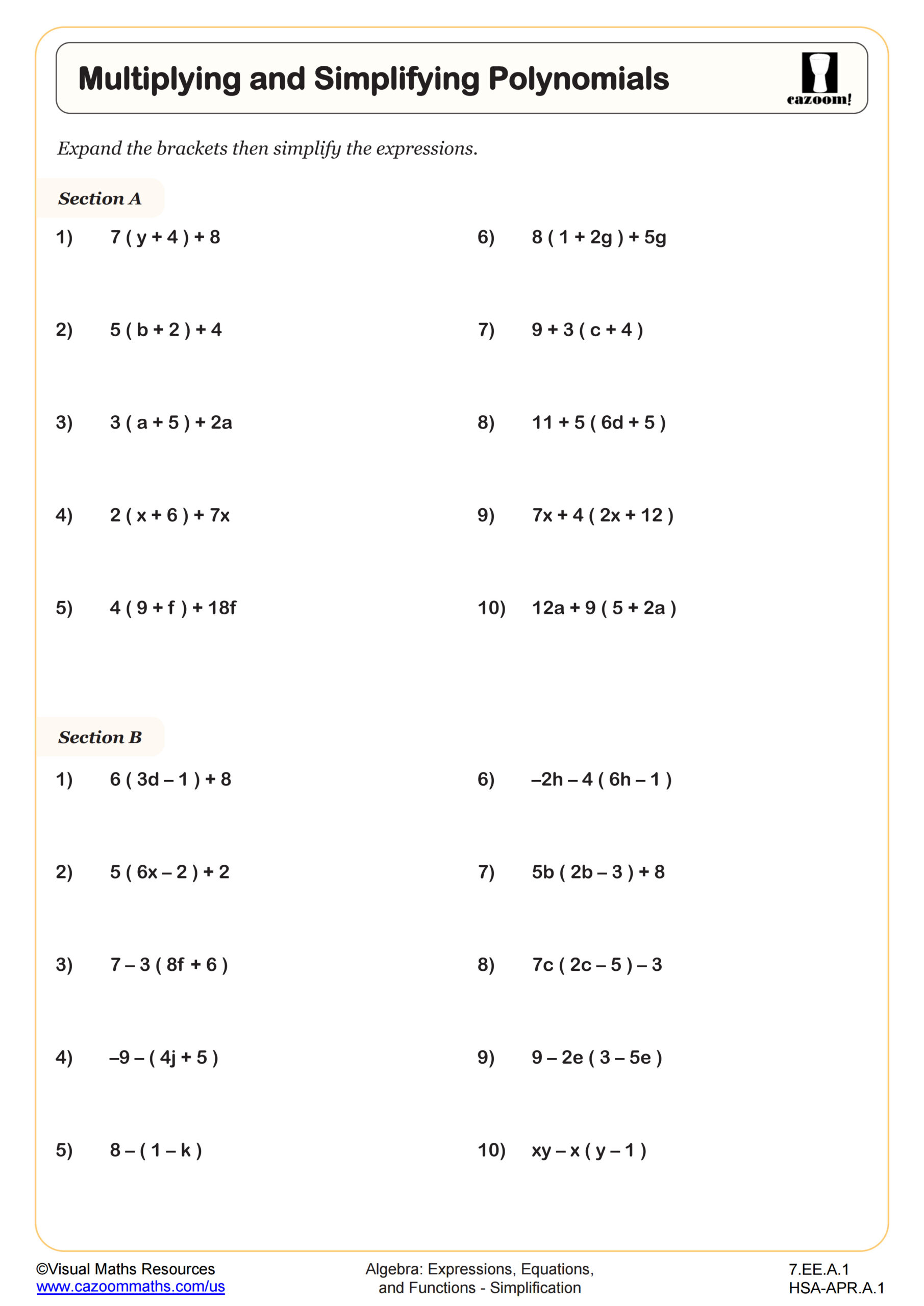
Add and Subtract in Standard Form
Grades: 8th Grade, Algebra I, IM 1
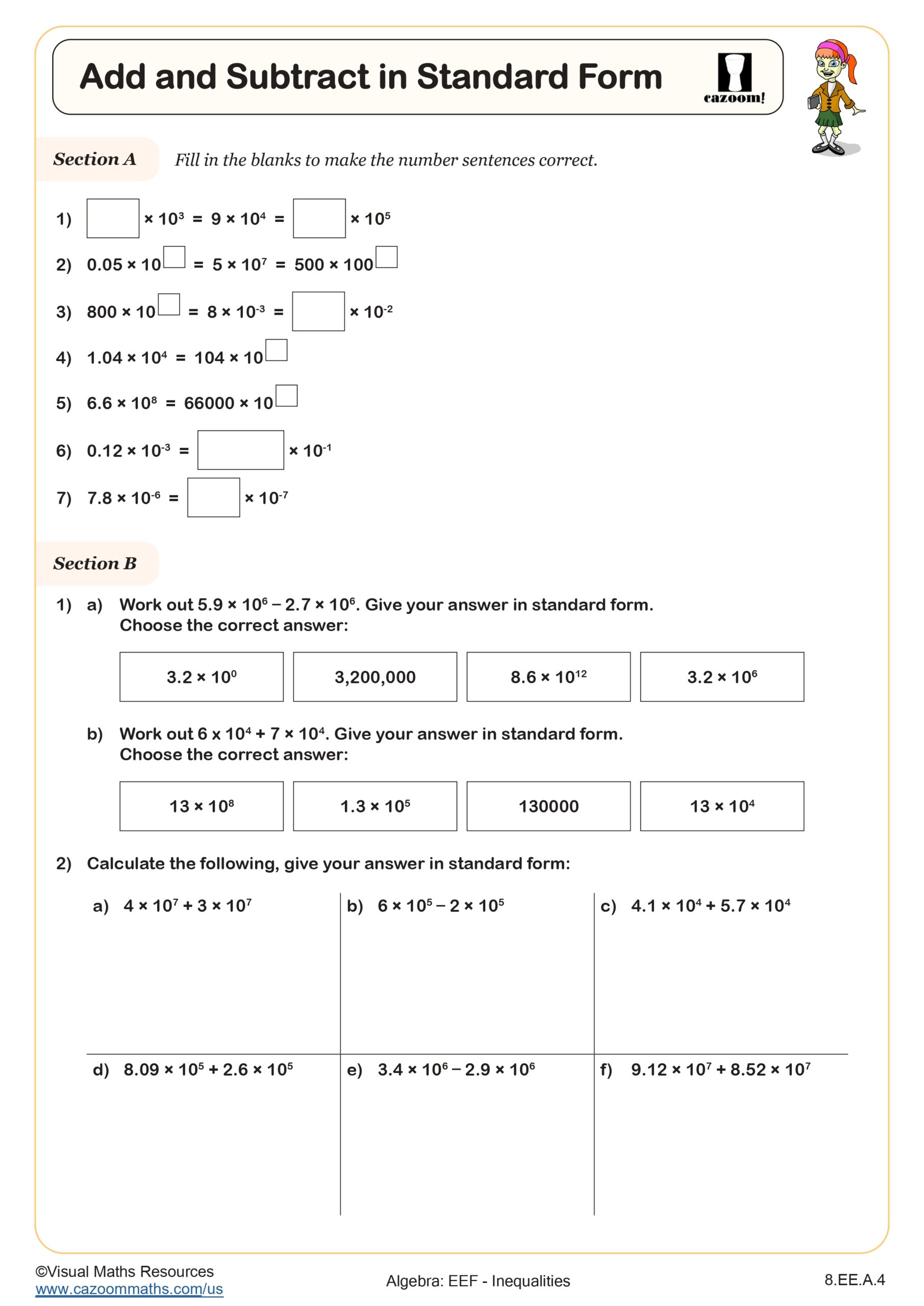
Evaluating Exponential Expressions
Grades: 8th Grade
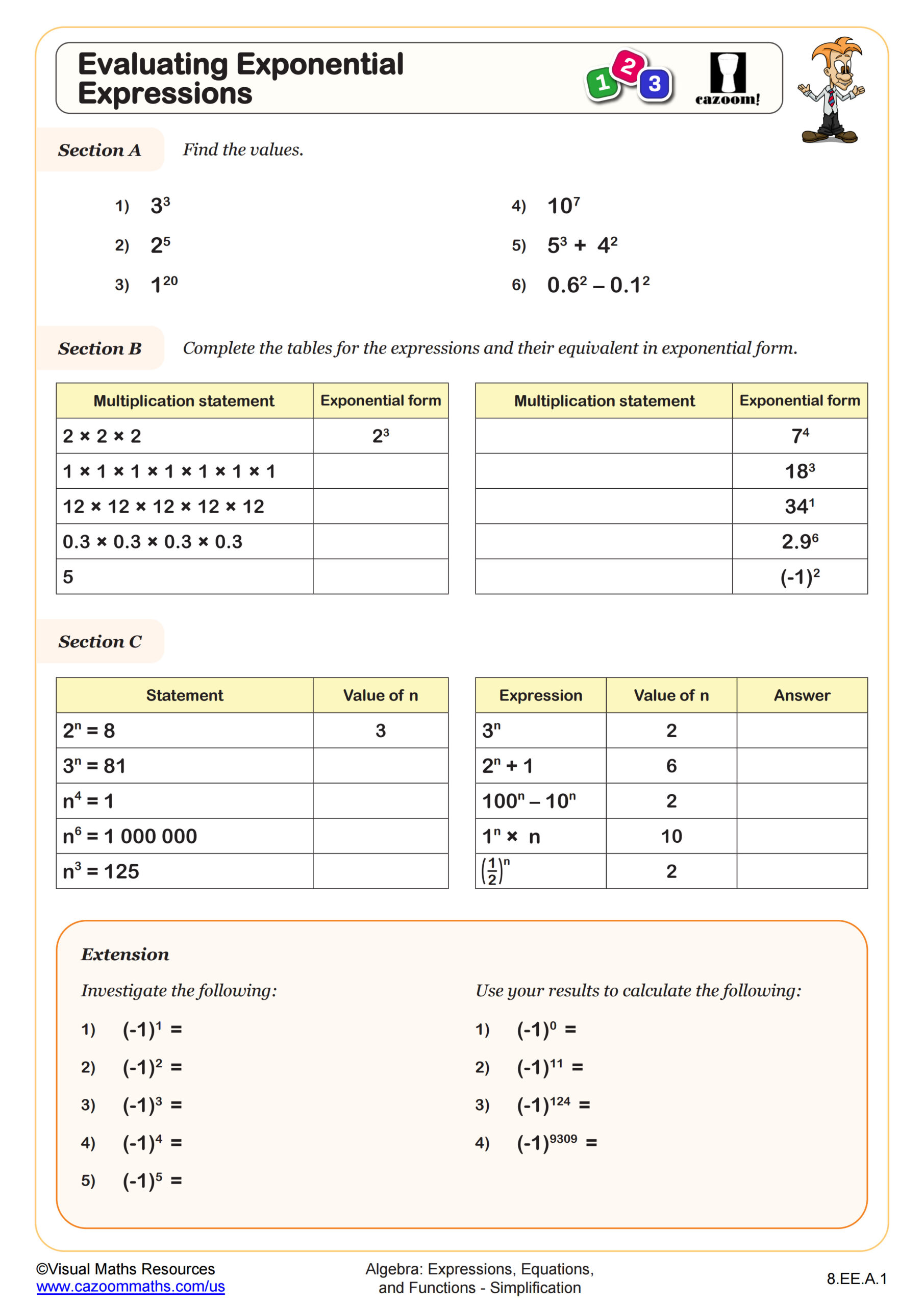
Exponential Expressions Synthesis
Grades: 8th Grade
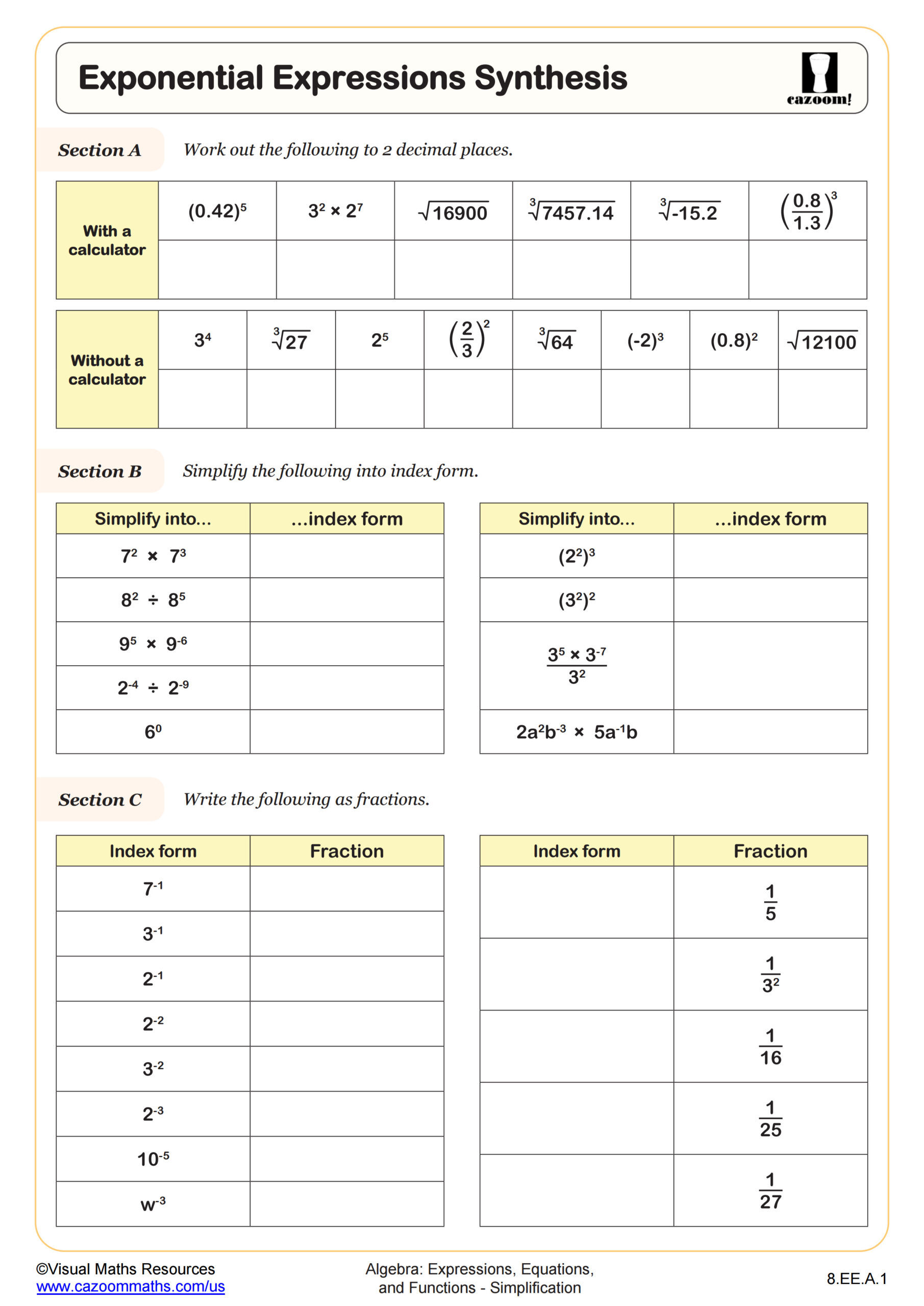
Exponential Expressions: Changing the Base
Grades: 8th Grade, Algebra I
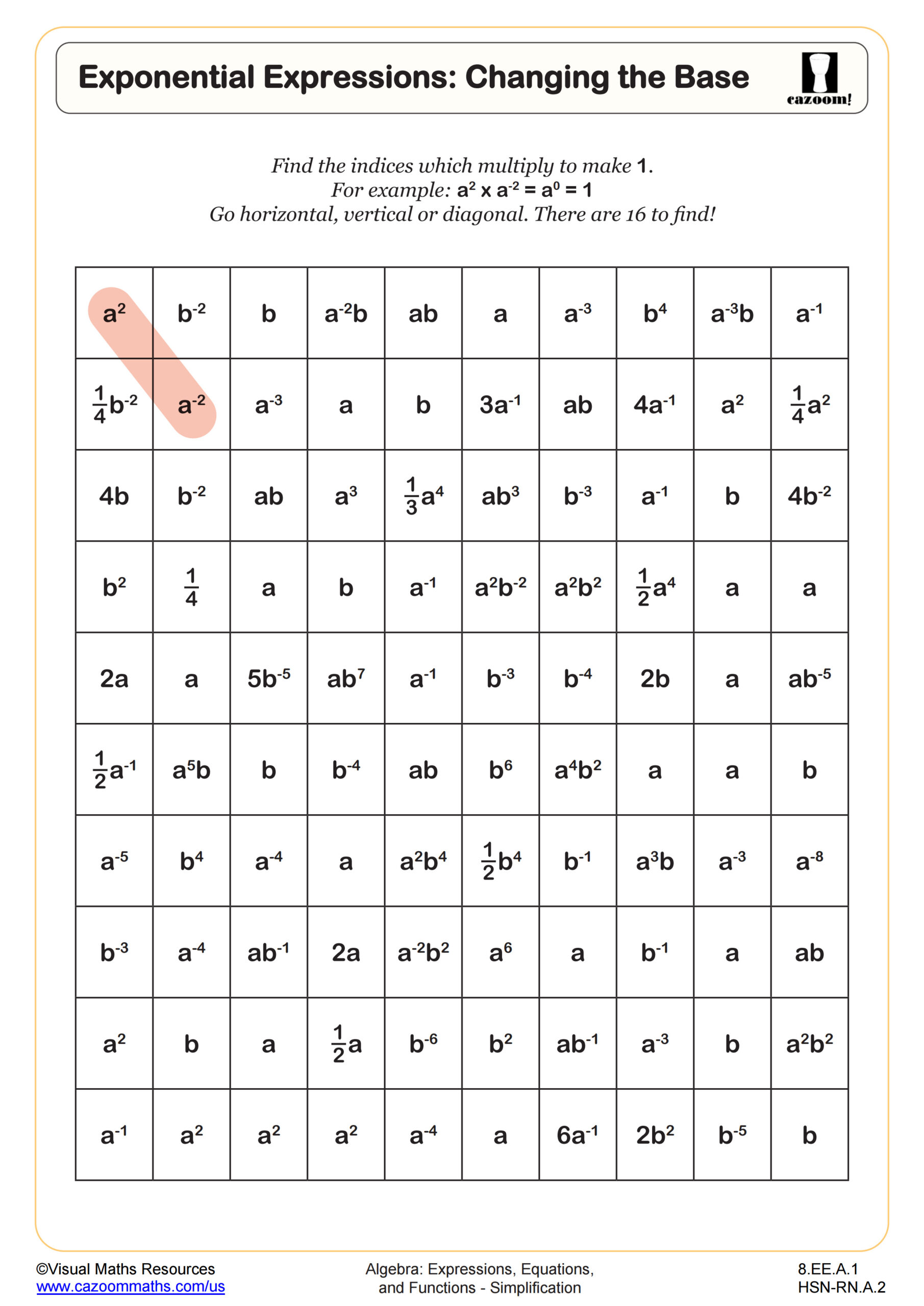
Exponential Expressions: Multiplying and Dividing
Grades: 8th Grade
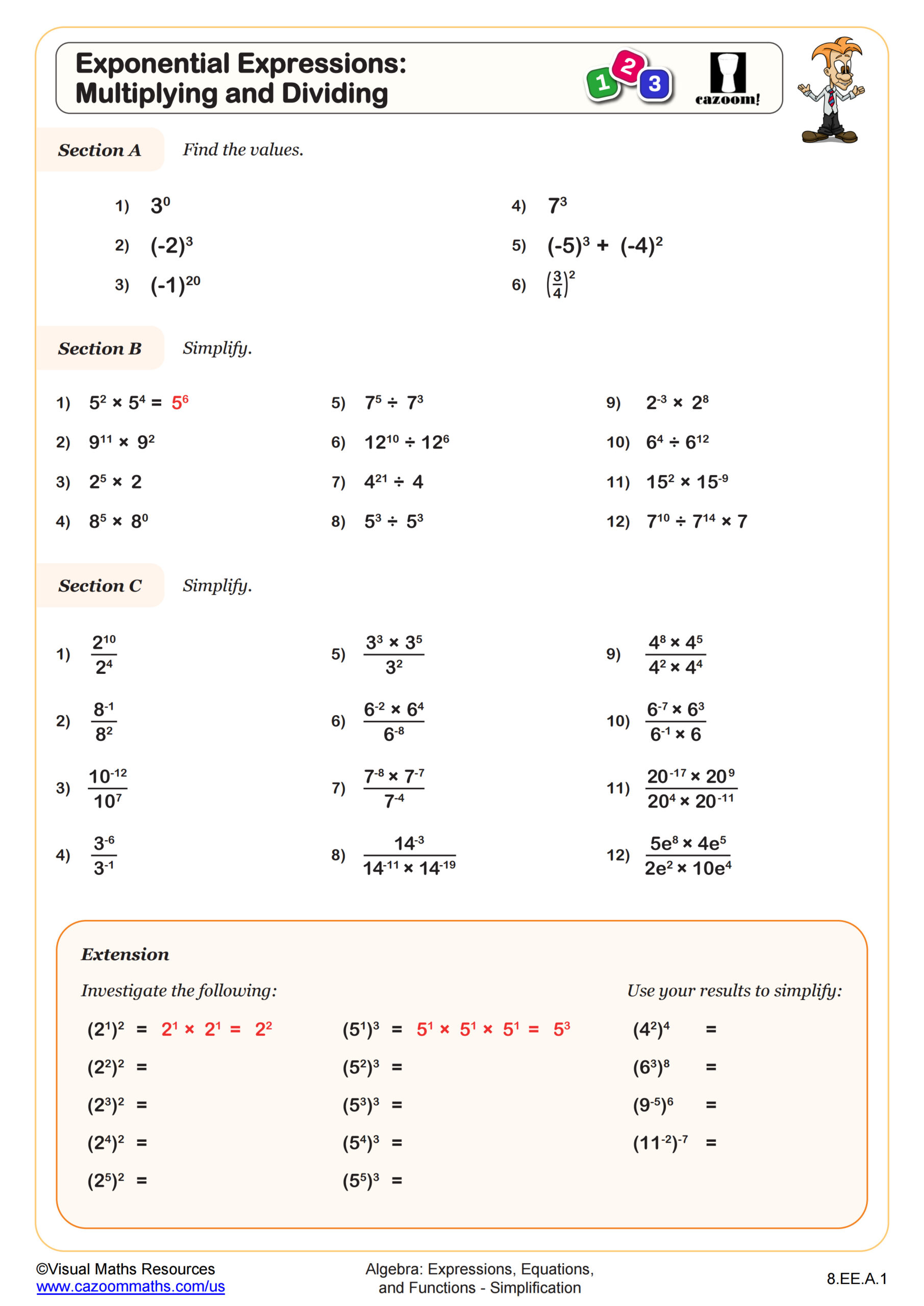
Exponential Expressions: Multiplying and Dividing Pyramids
Grades: 8th Grade
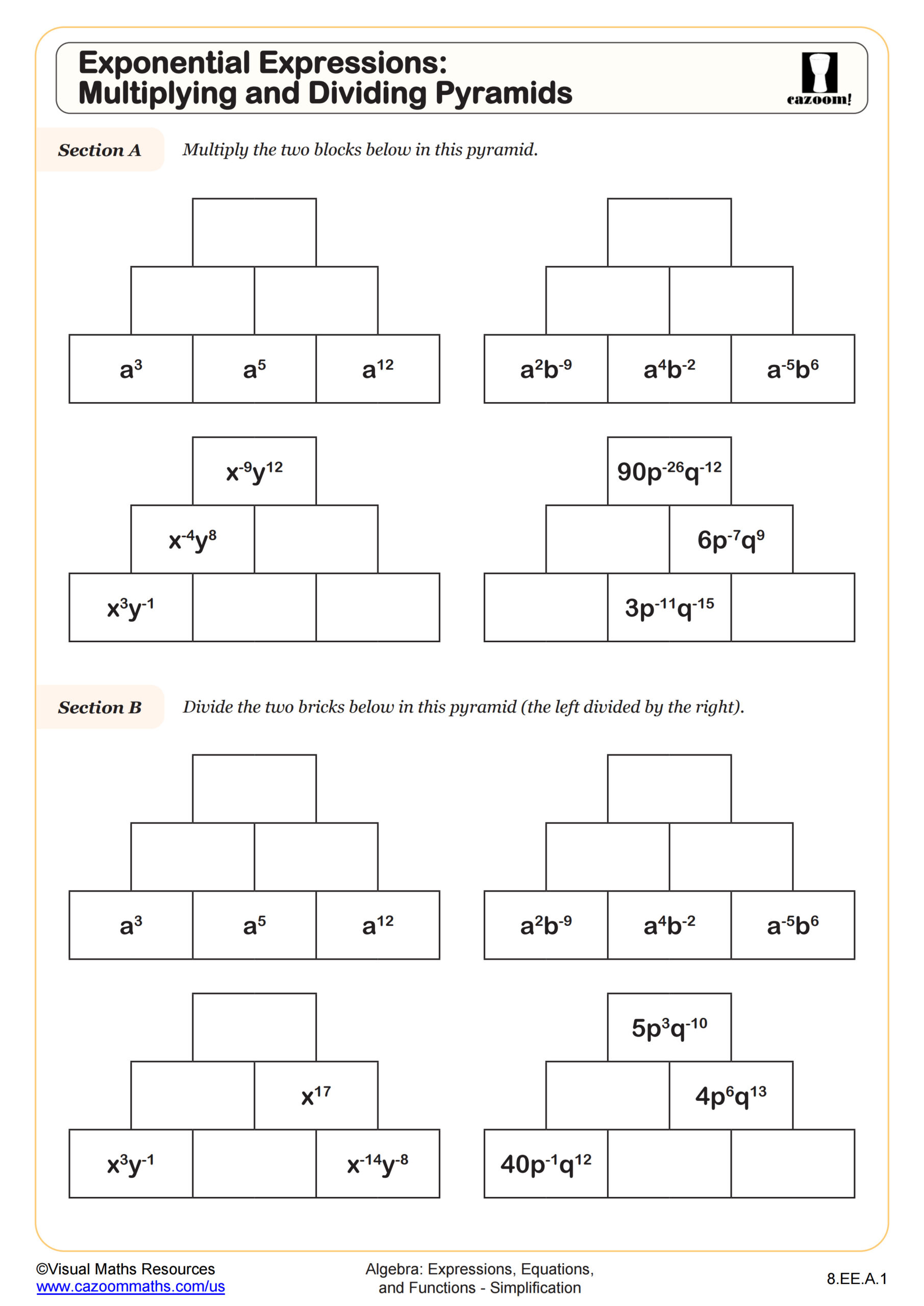
Exponential Expressions: Multiplying, Dividing, and Power Rules
Grades: 8th Grade
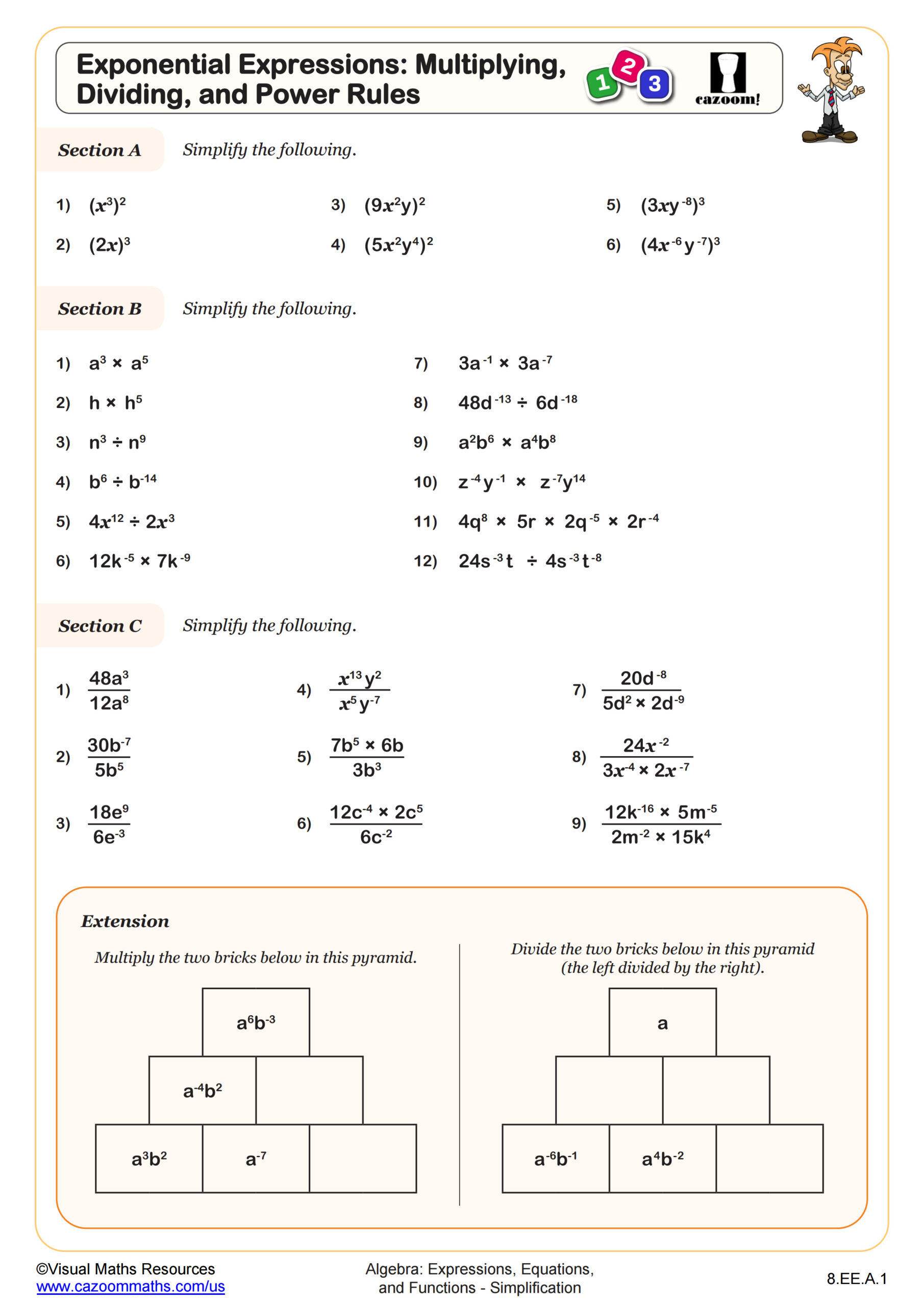
Exponential Expressions: Working with Negative and Fractional Bases
Grades: 8th Grade
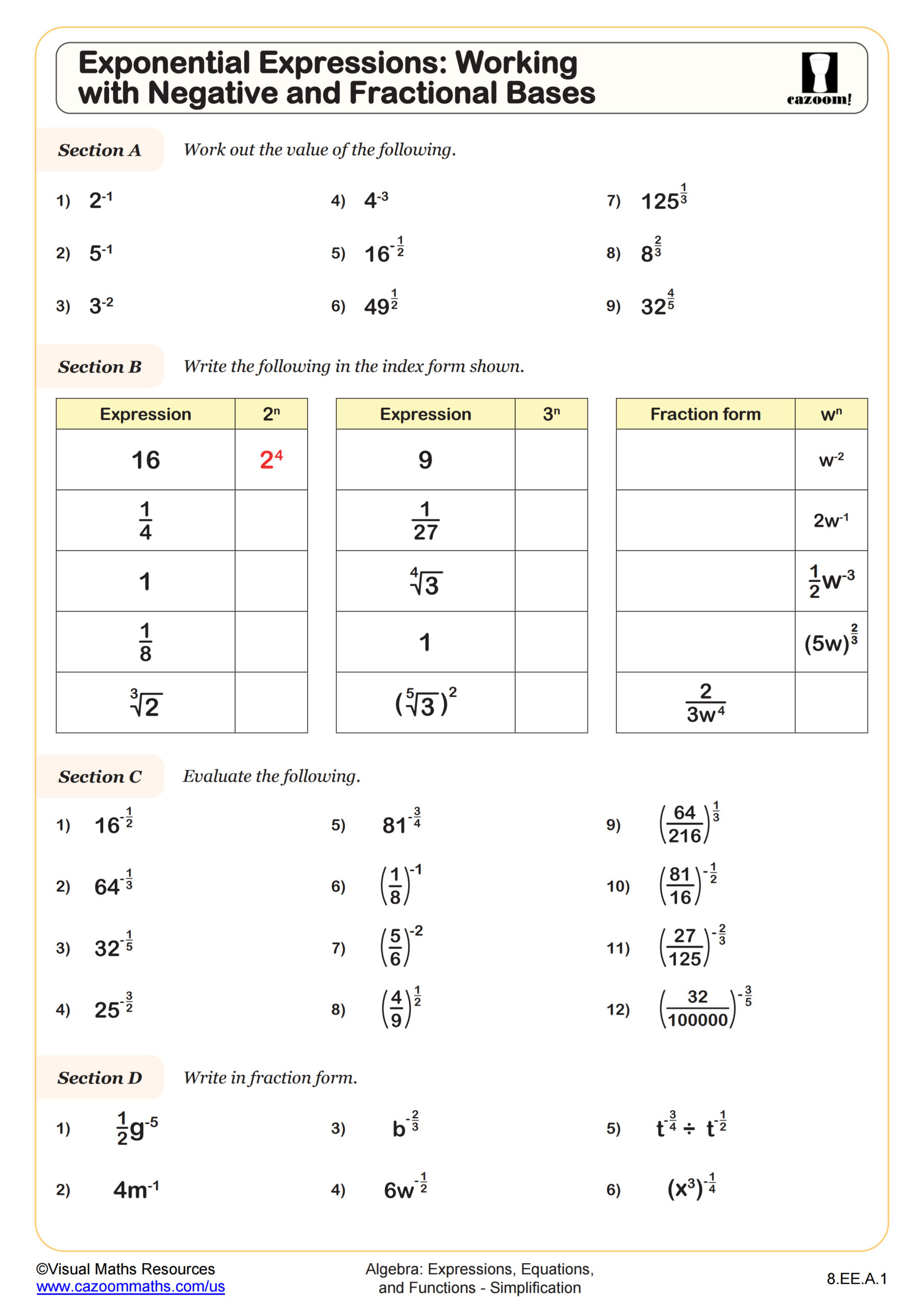
Adding and Subtracting Algebraic Fractions
Grades: Algebra I, IM 3
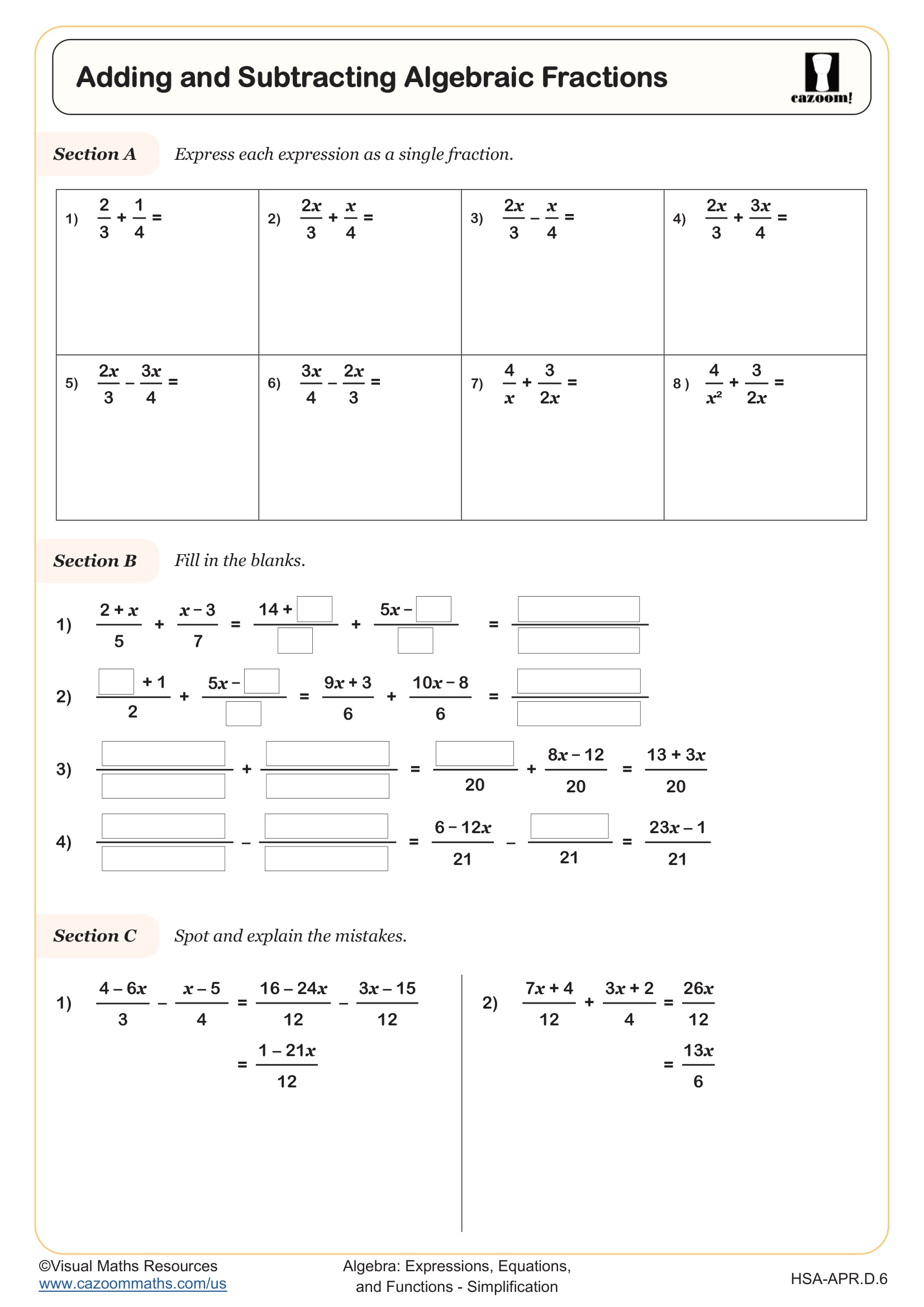
Factoring Quadratic Expressions
Grades: Algebra I, IM 1
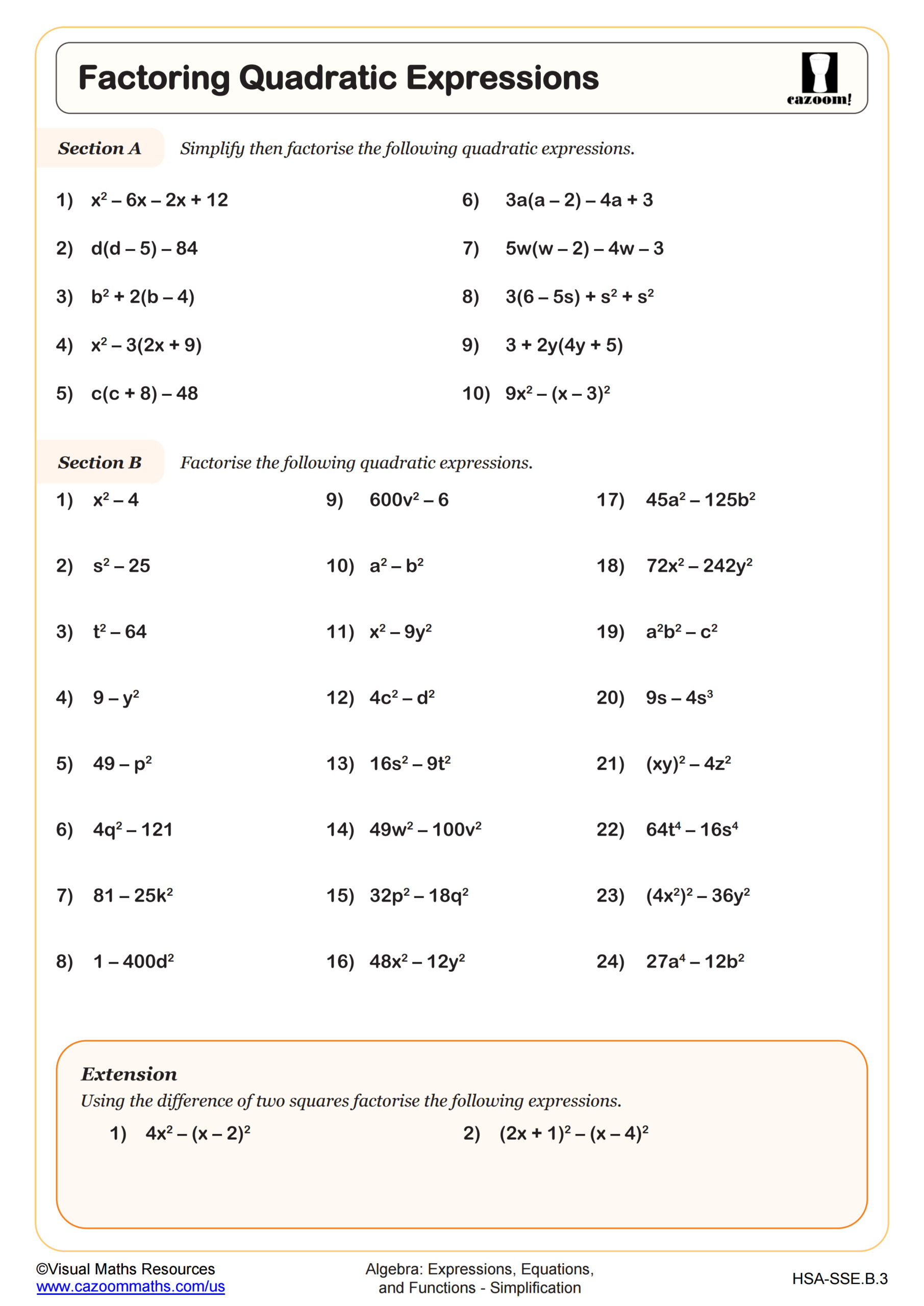
Factoring Trinomials
Grades: Algebra I, IM 1
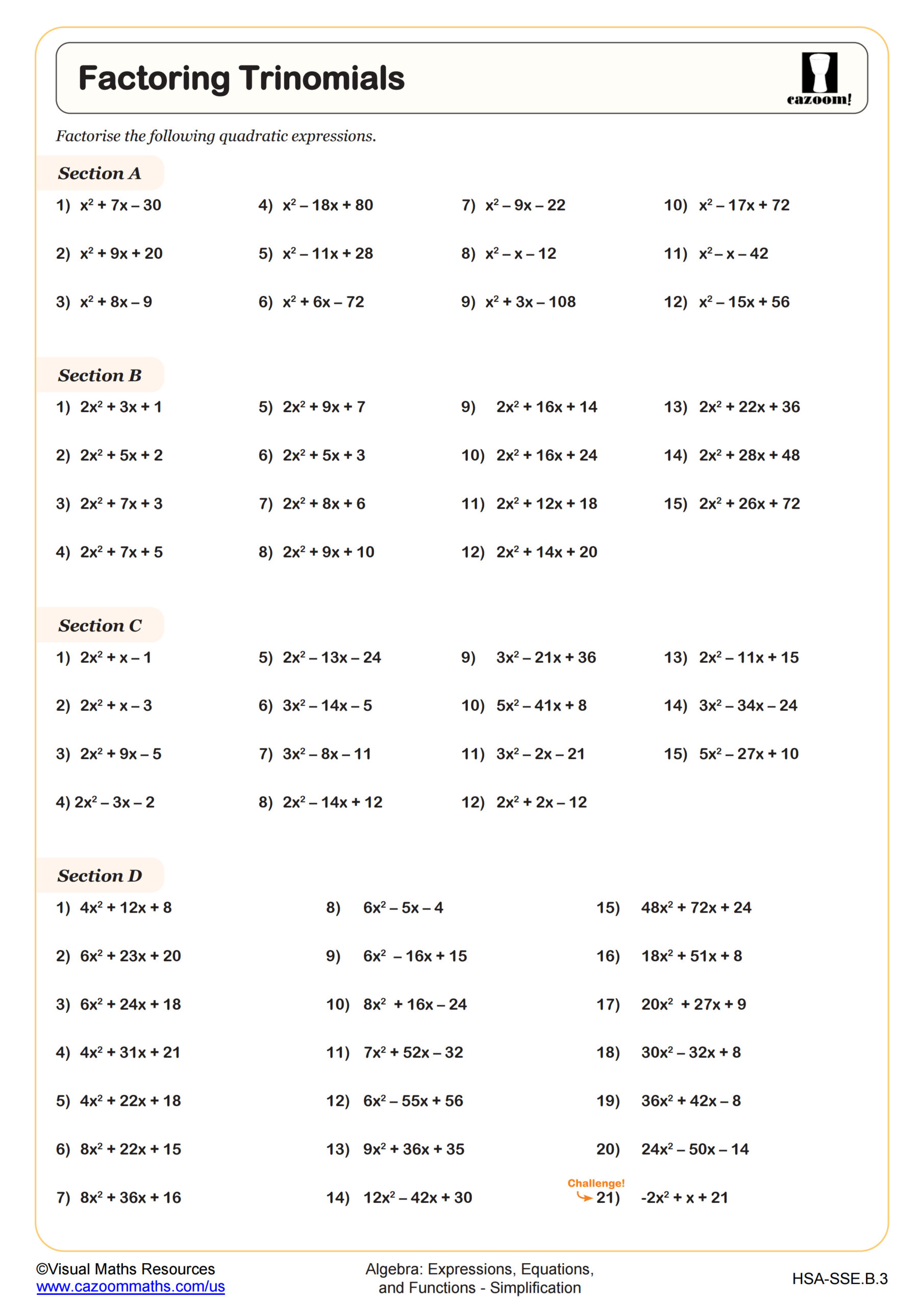
Factoring Trinomials: a = 1
Grades: Algebra I, IM 1
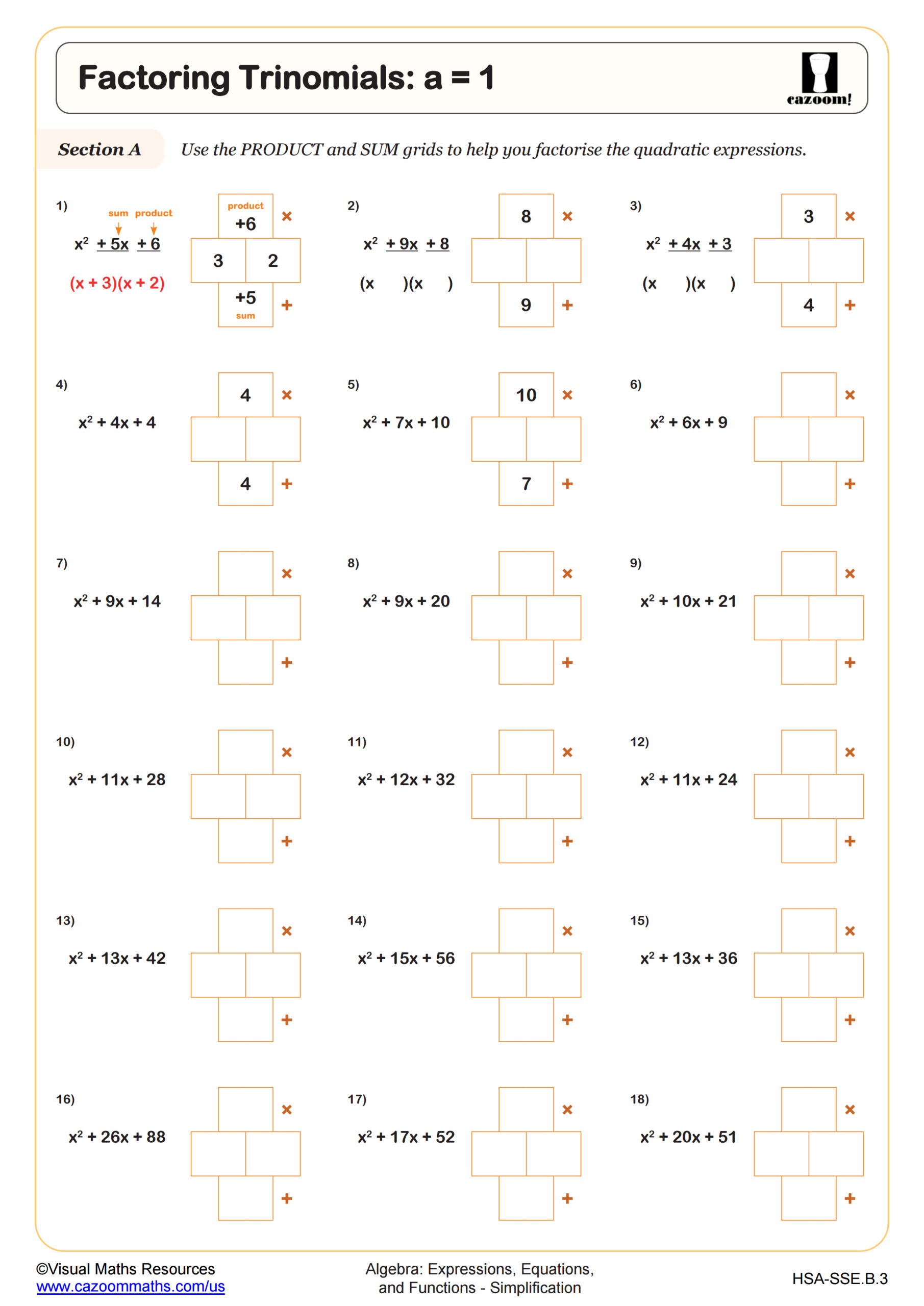
Factoring using GCF
Grades: Algebra I, IM 1
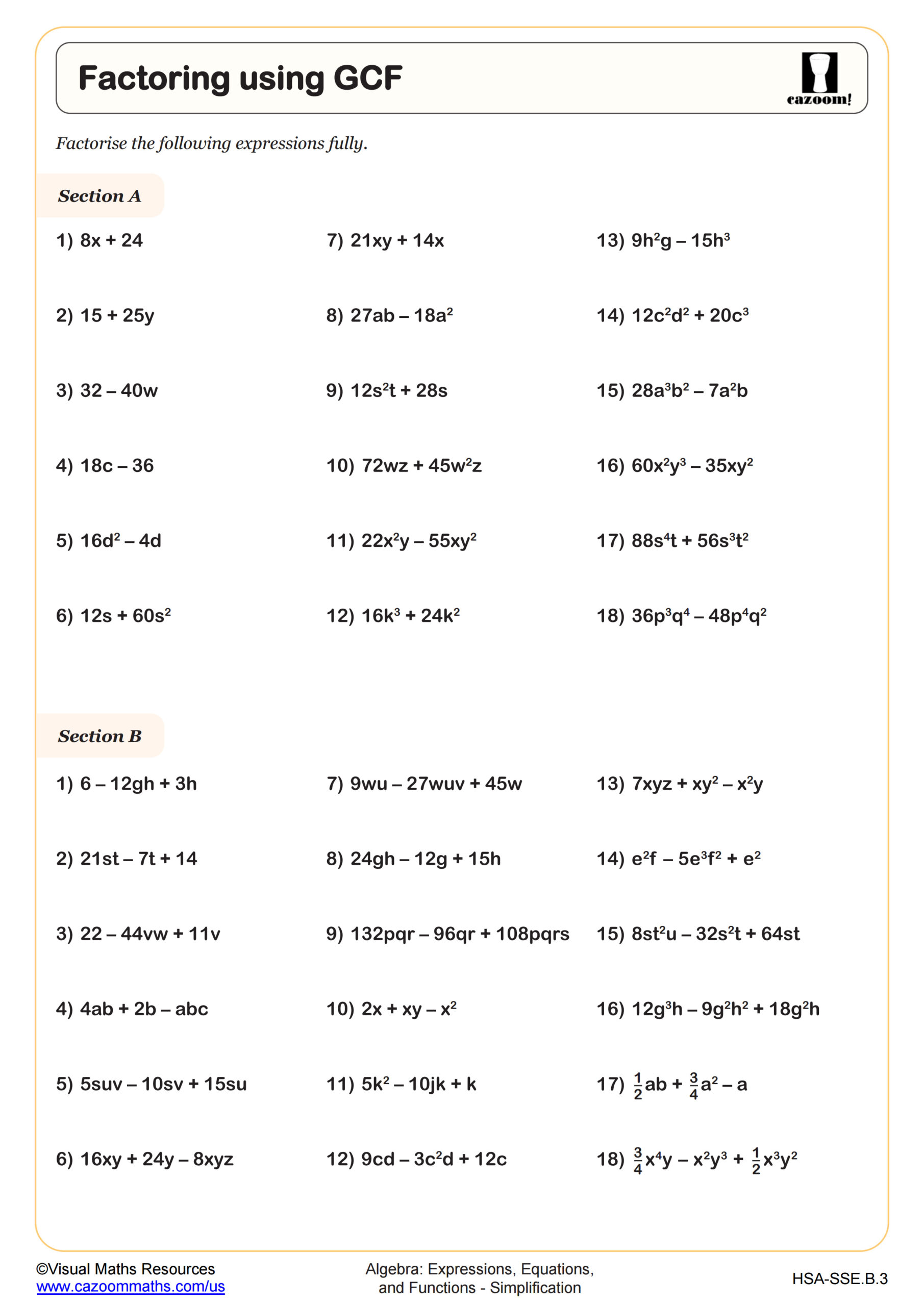
Factoring: Difference of Two Squares
Grades: Algebra I, IM 1
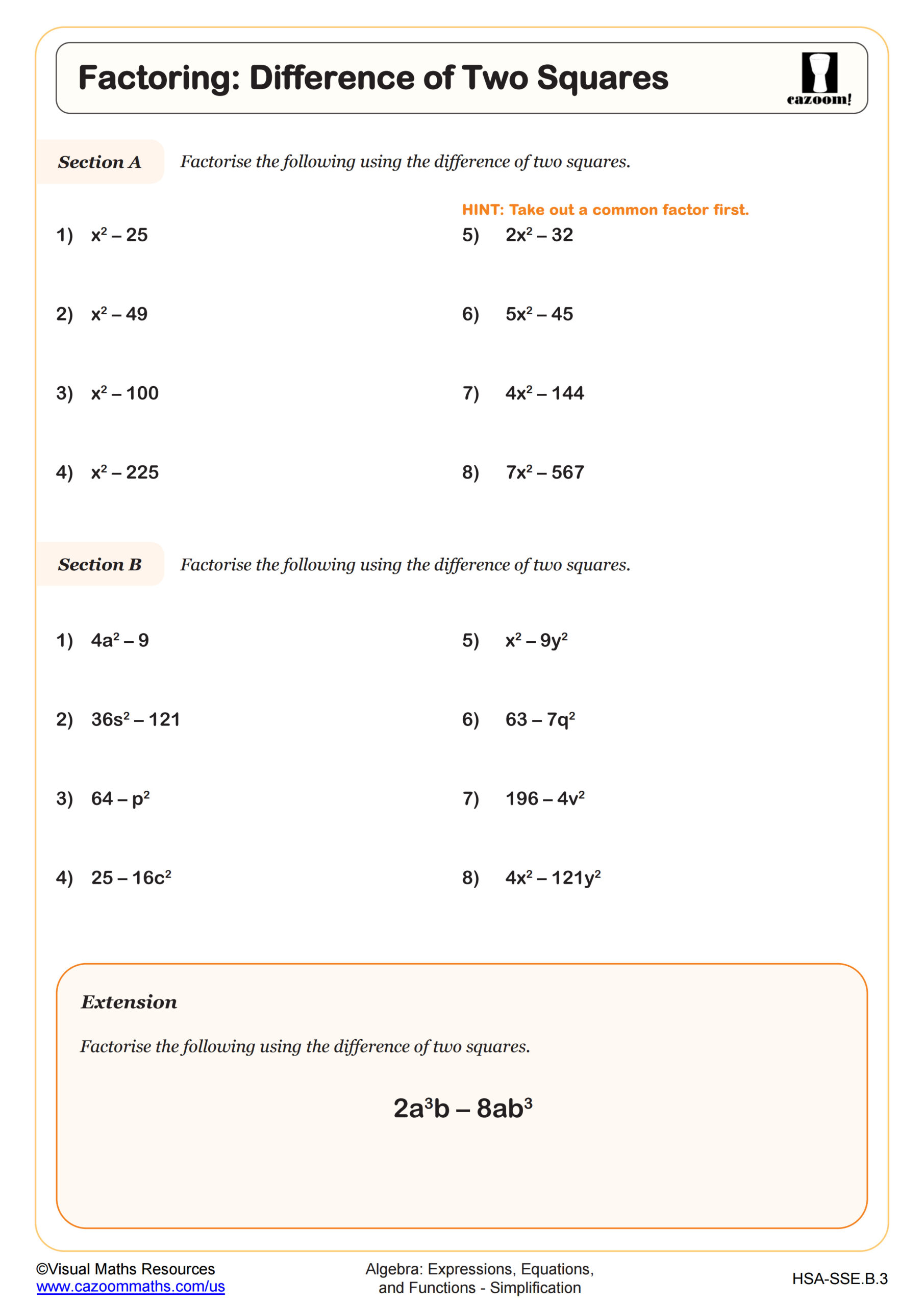
Greatest Common Factor
Grades: Algebra I, IM 1
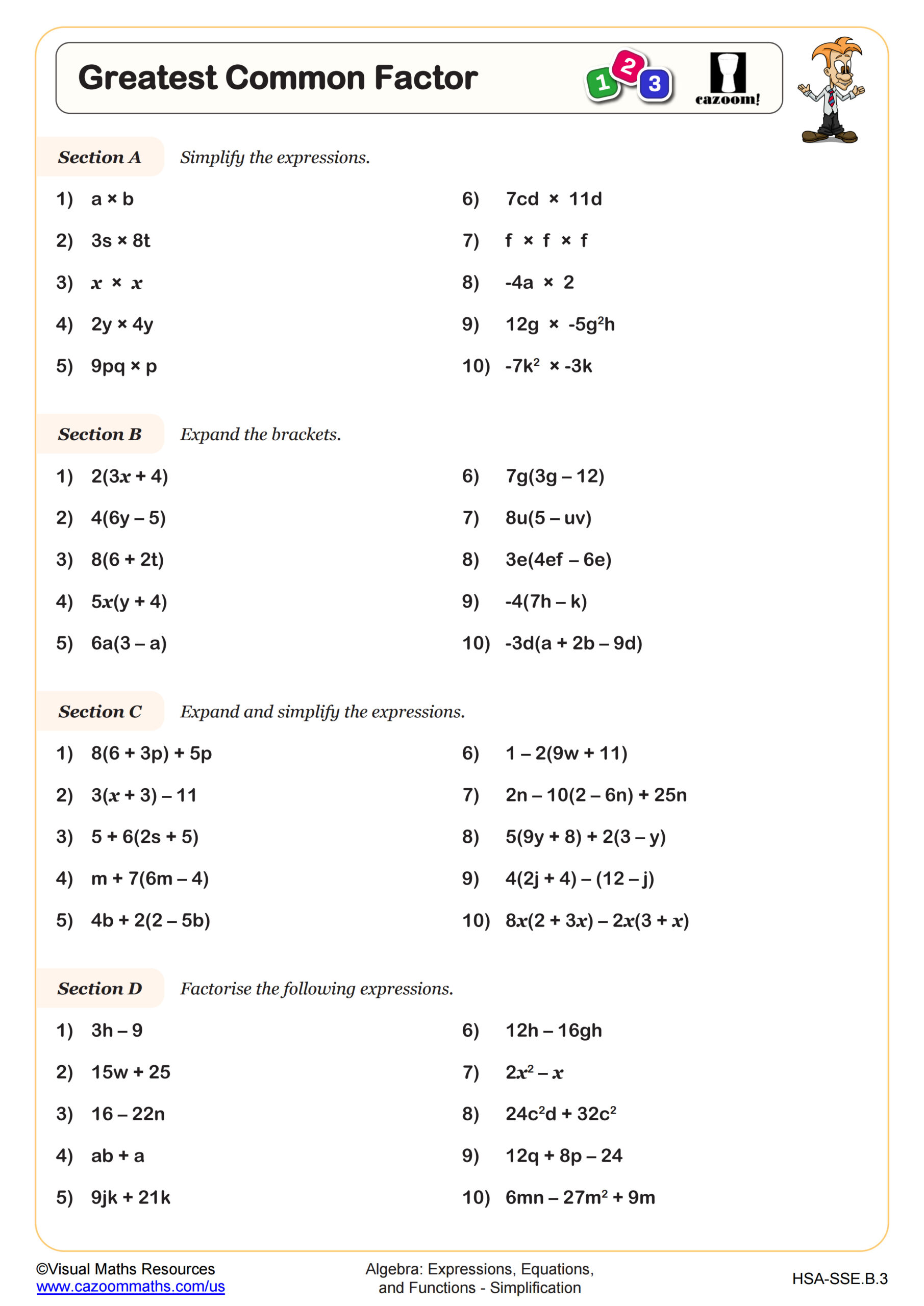
Identifying Like Terms
Grades: Algebra I, IM 1
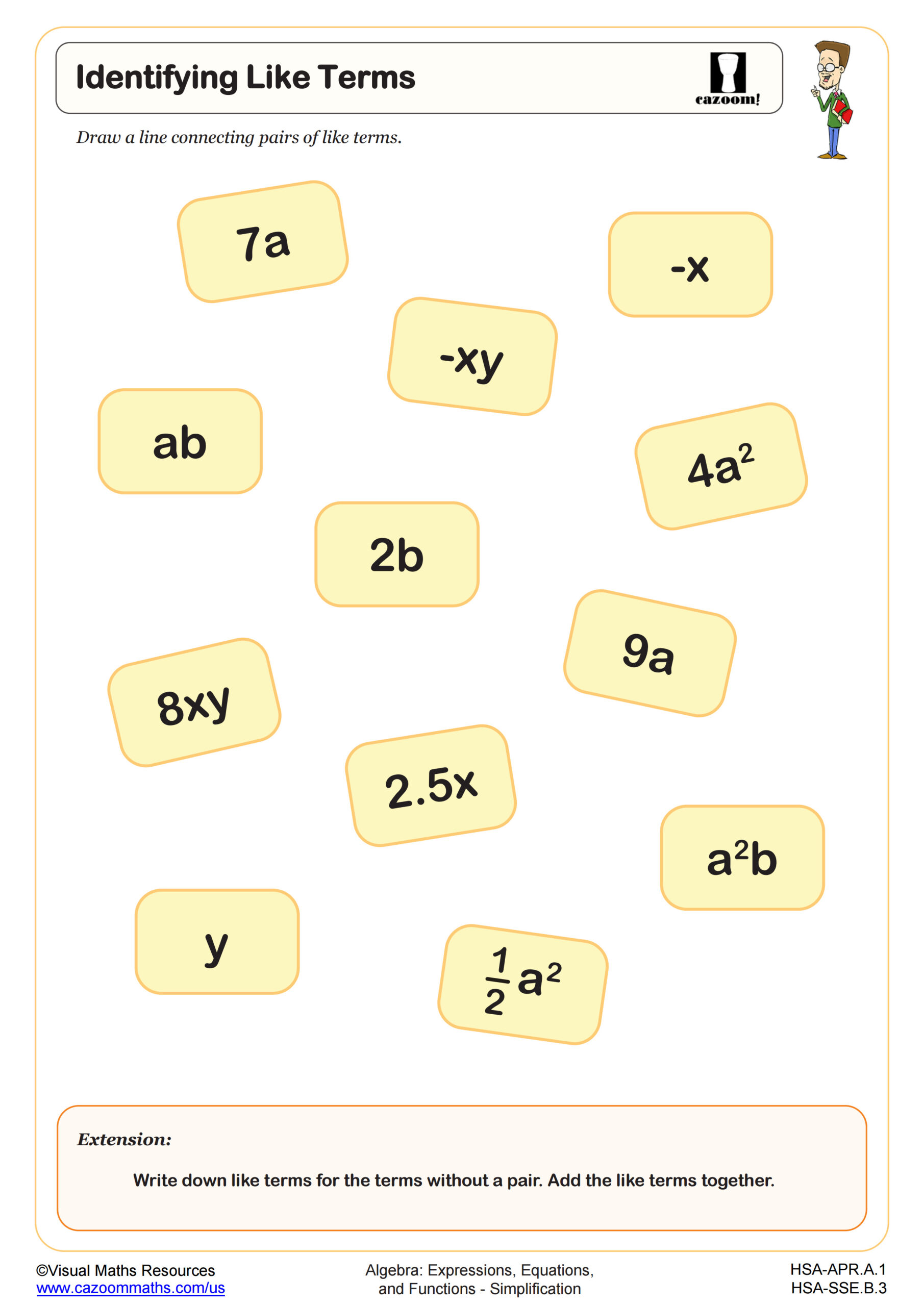
Introduction to Factoring
Grades: Algebra I, IM 1
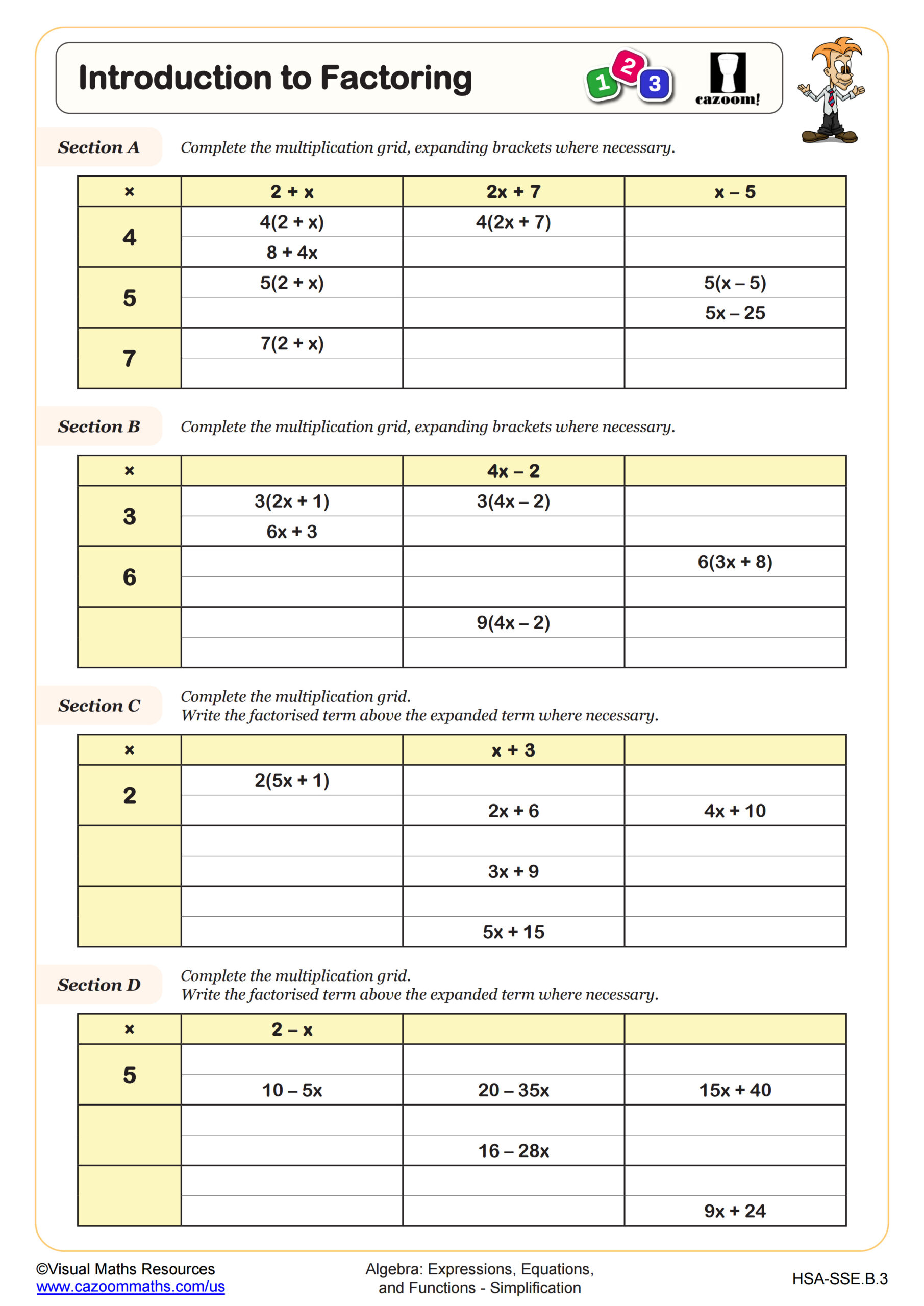
Multiply and Divide Algebraic Fractions (A)
Grades: Algebra I, IM 1

Multiplying Expressions with Fractional Coefficients
Grades: Algebra I, IM 1
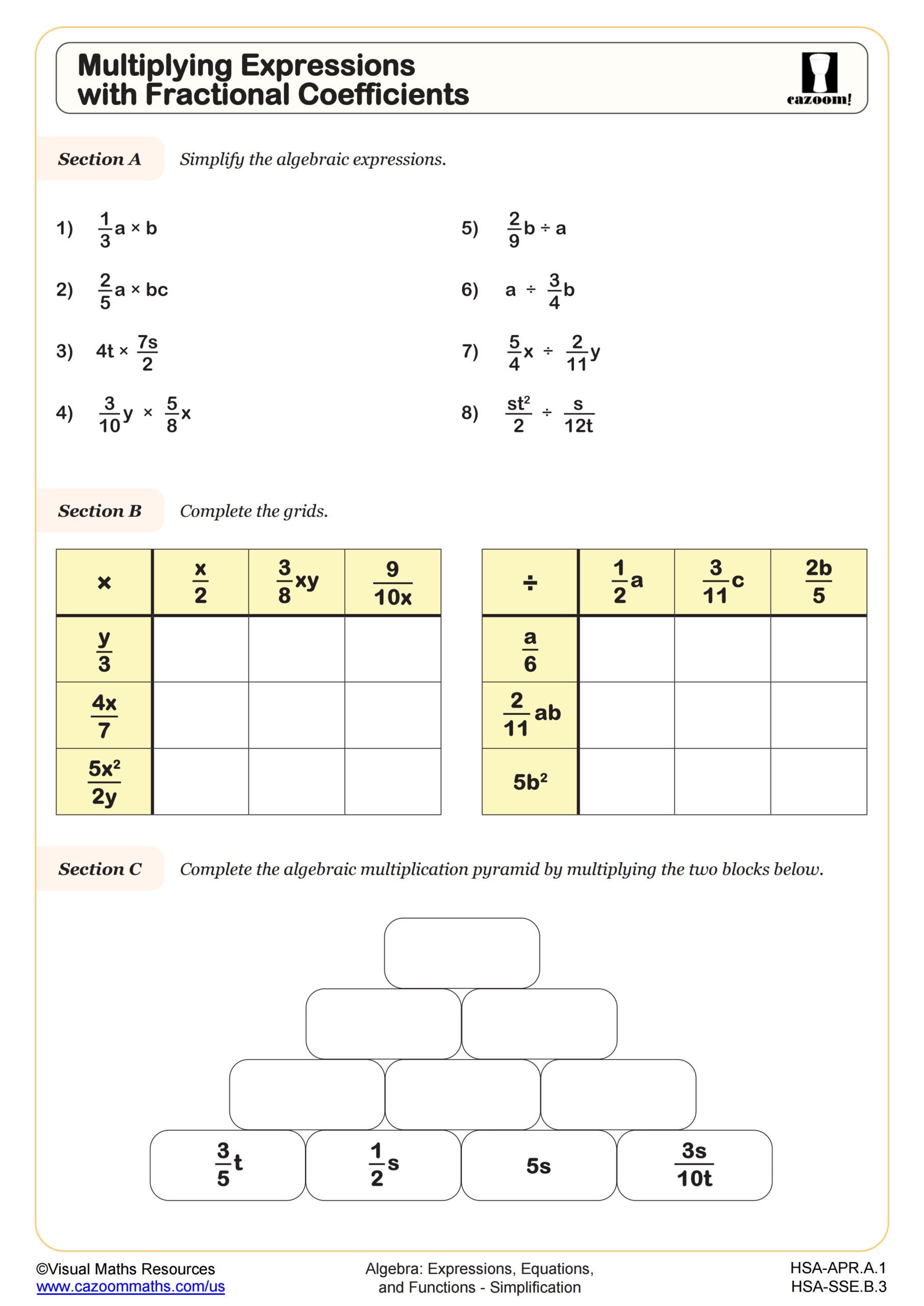
Polynomial Addition Perimeters
Grades: Algebra I, IM 1
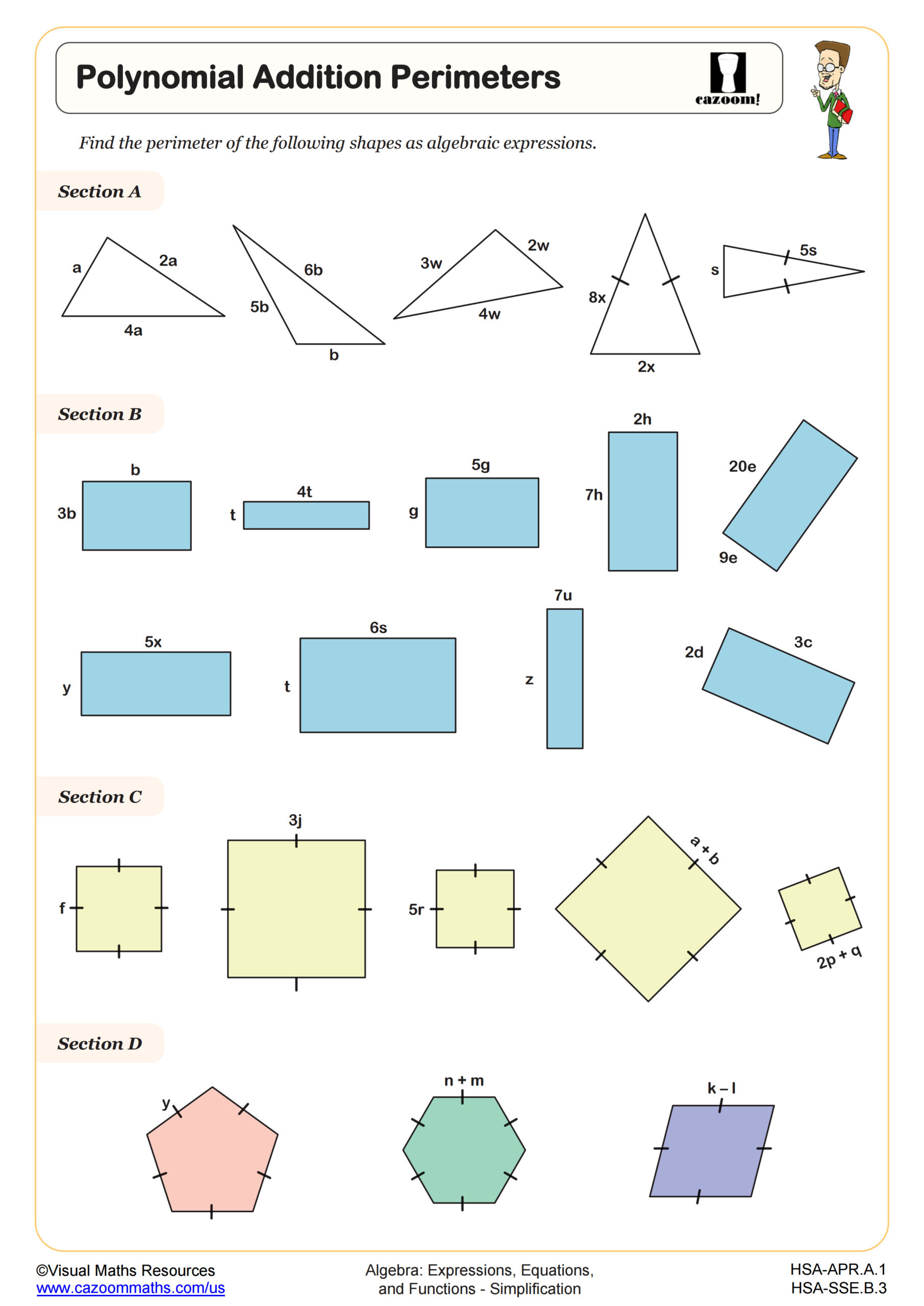
Polynomial Addition Pyramids (A)
Grades: Algebra I, IM 1
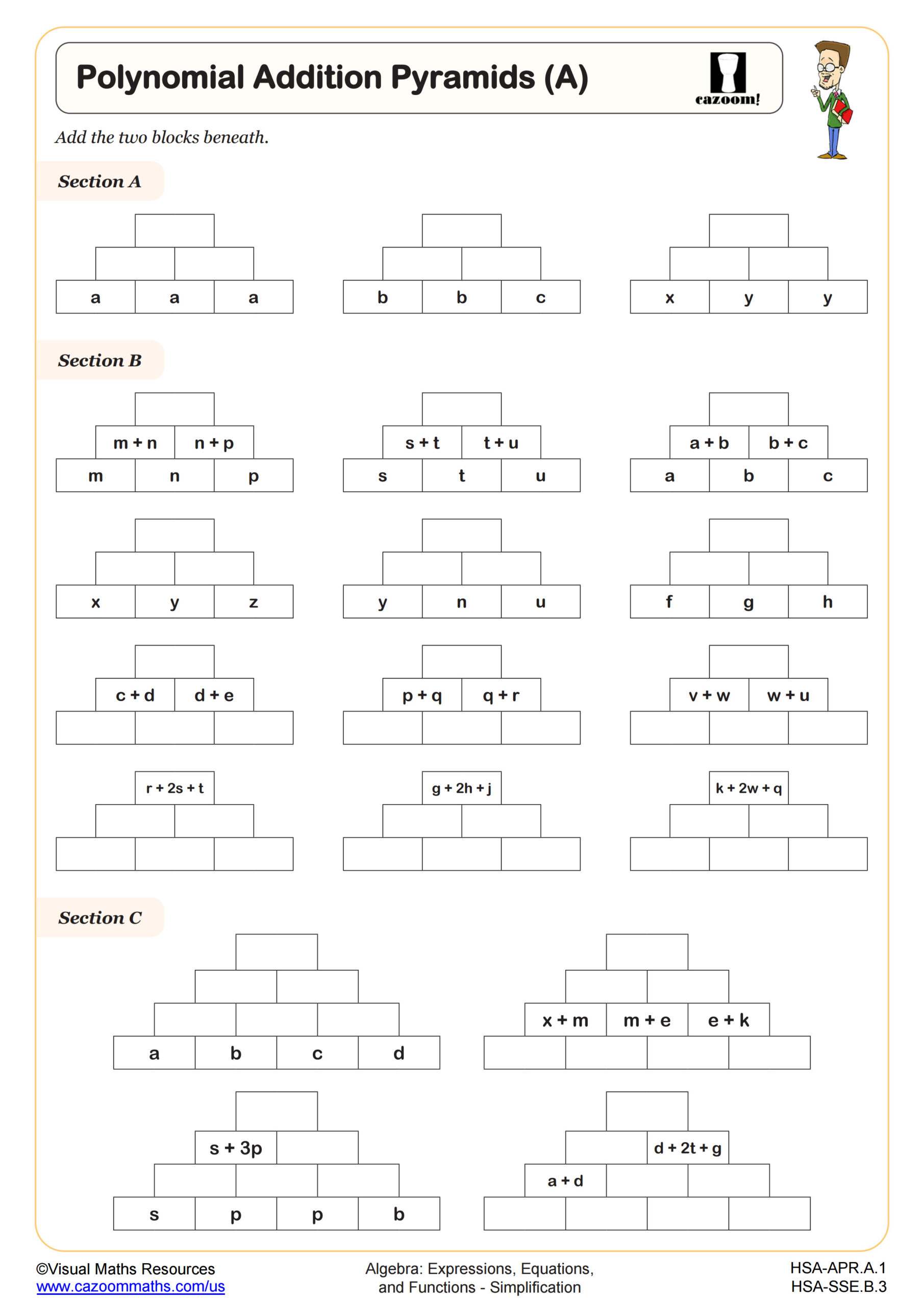
Polynomial Addition Pyramids (B)
Grades: Algebra I, IM 1
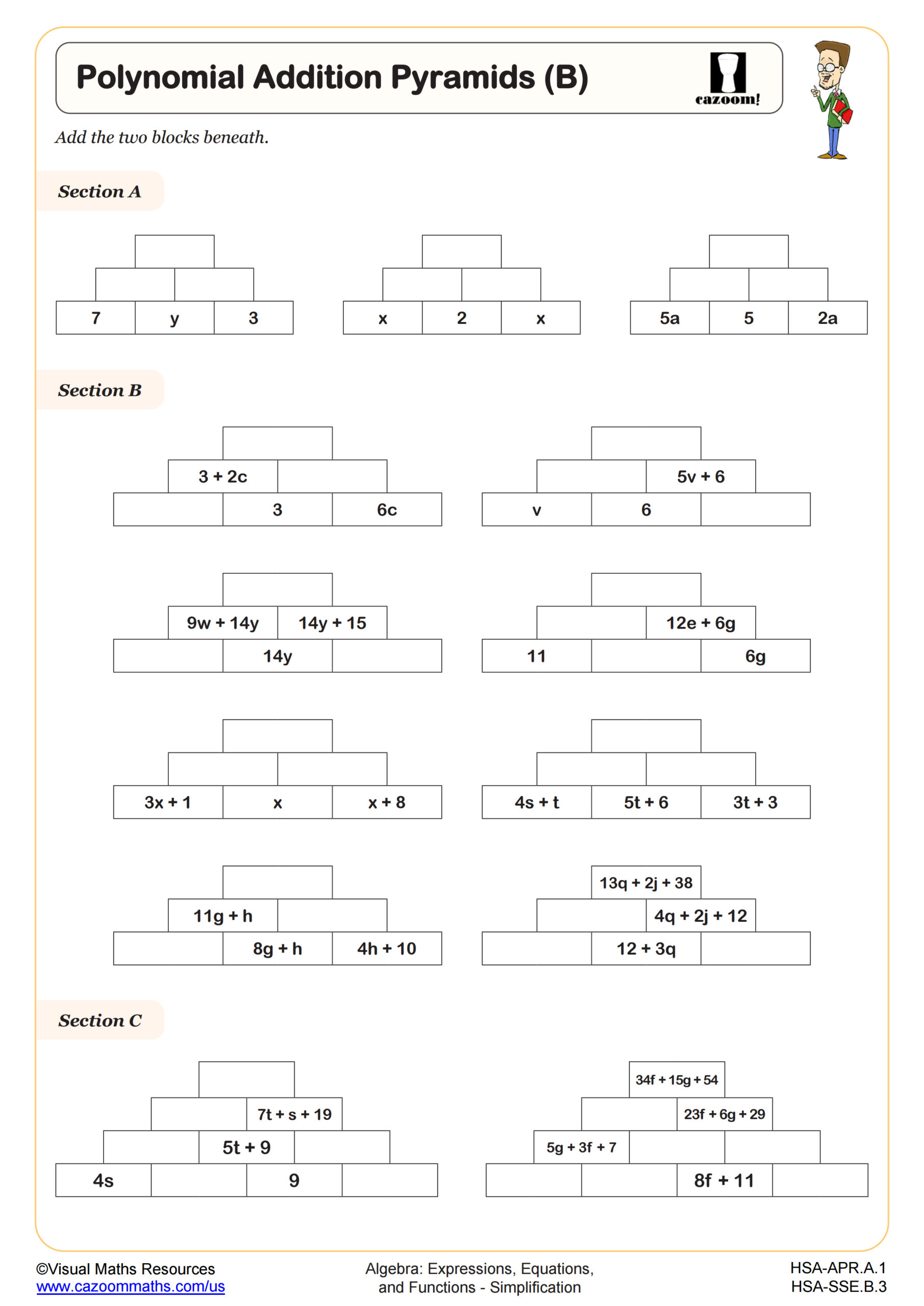
Polynomial Addition Pyramids (C)
Grades: Algebra I, IM 1
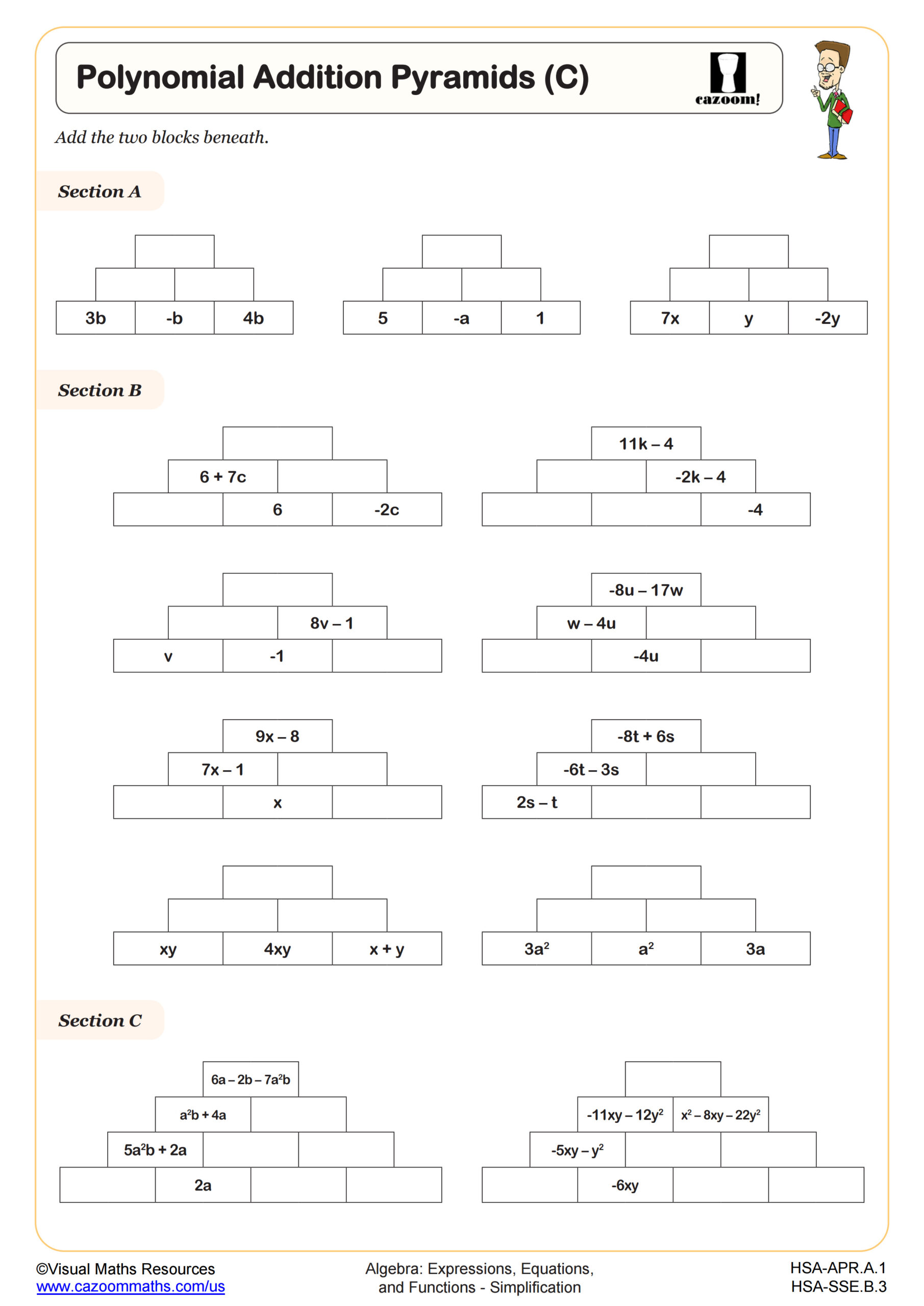
Polynomial Multiplication Grids
Grades: Algebra I, IM 1
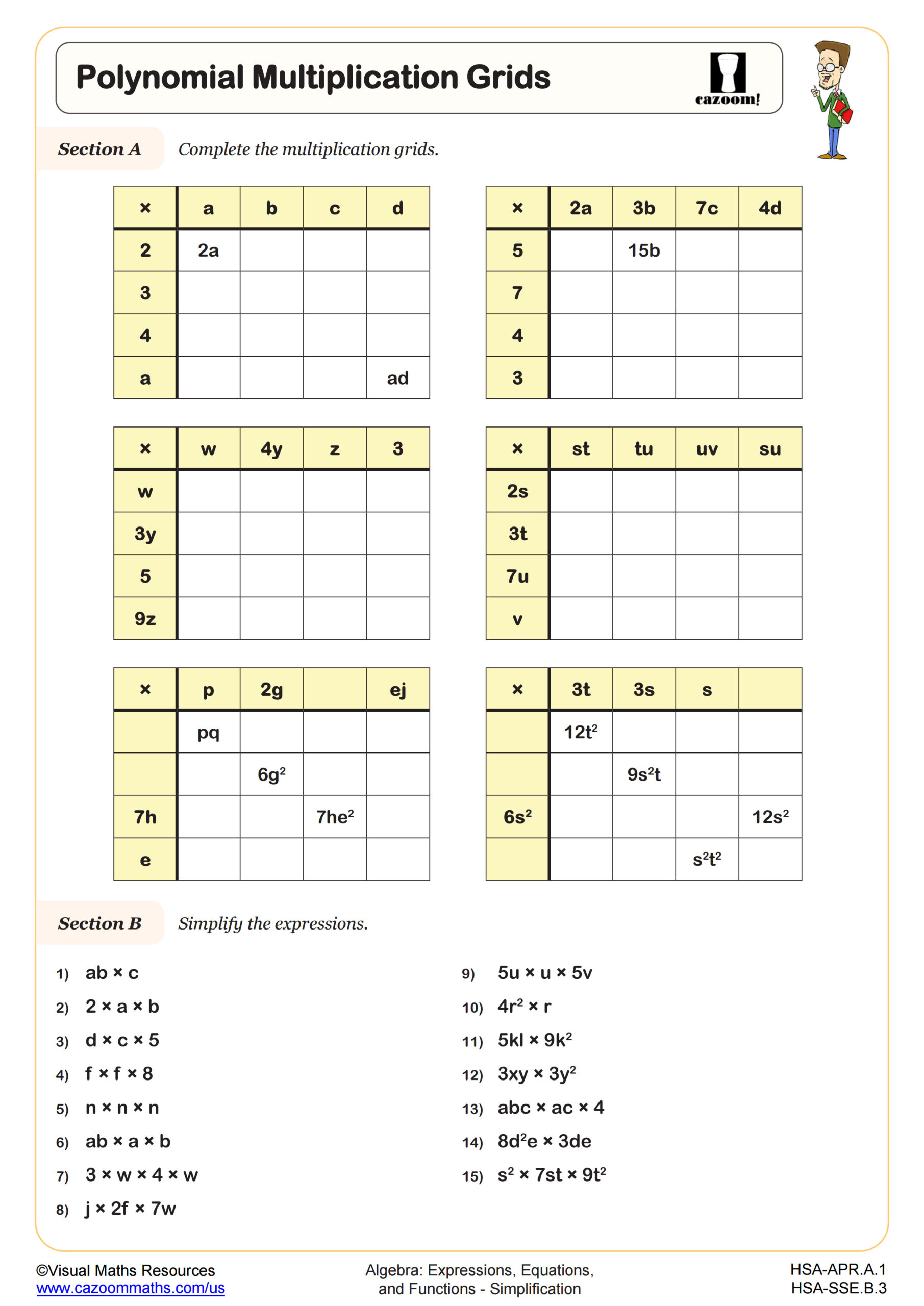
Proving Equivalent Expressions
Grades: Algebra I, IM 1
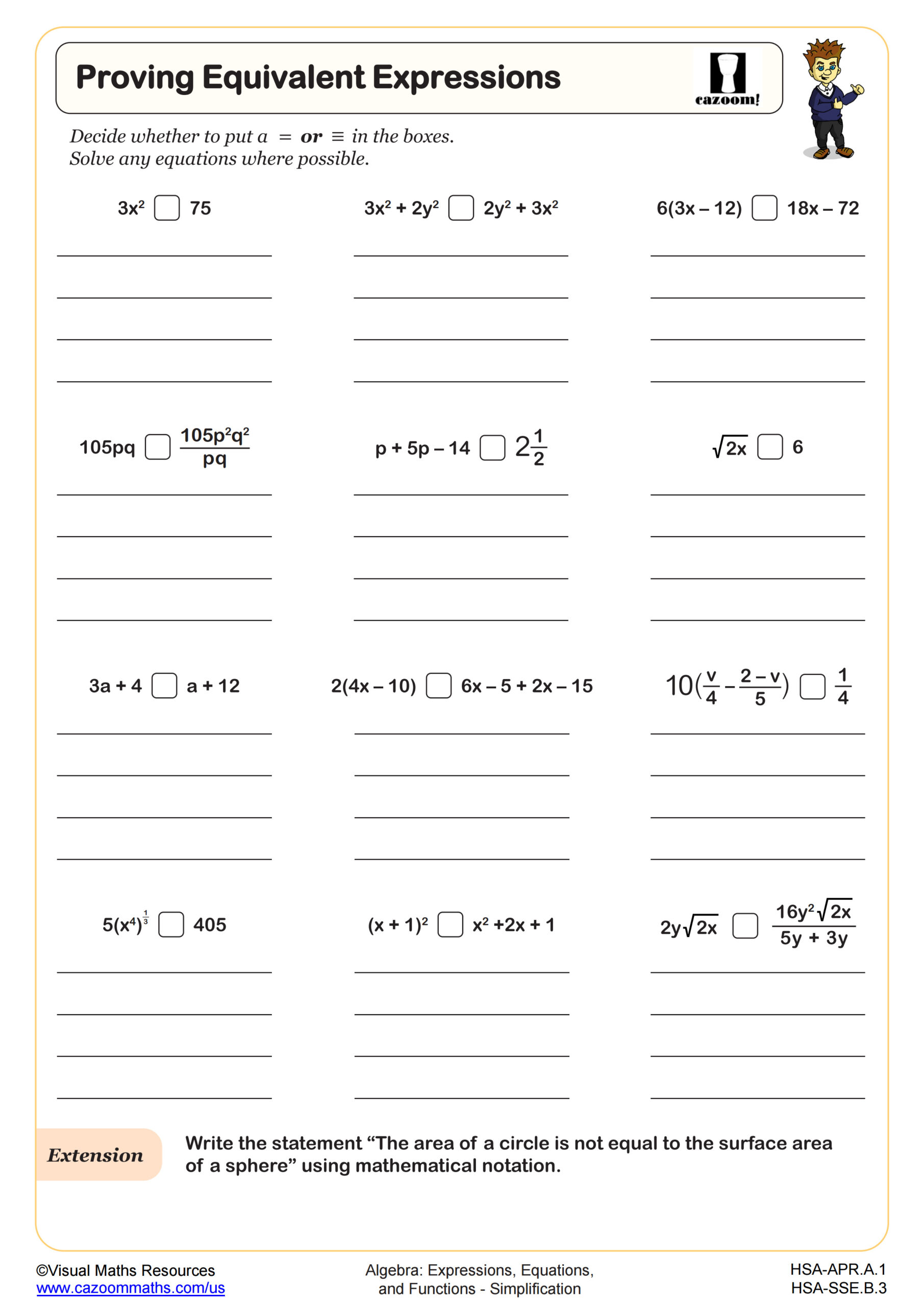
Simplify Algebraic Fractions (A)
Grades: Algebra I, IM 1
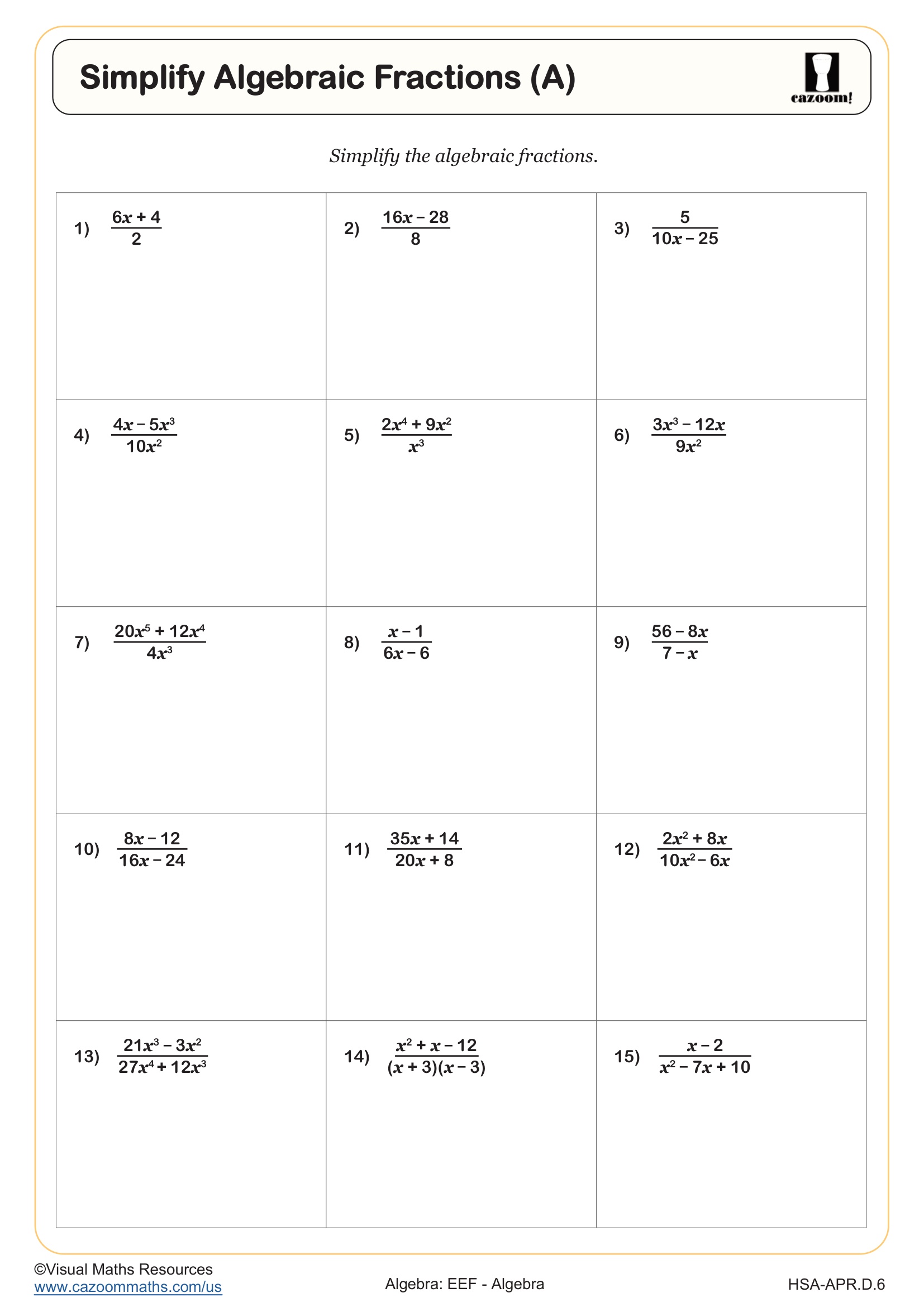
Simplify Algebraic Fractions (B)
Grades: Algebra I, IM 1
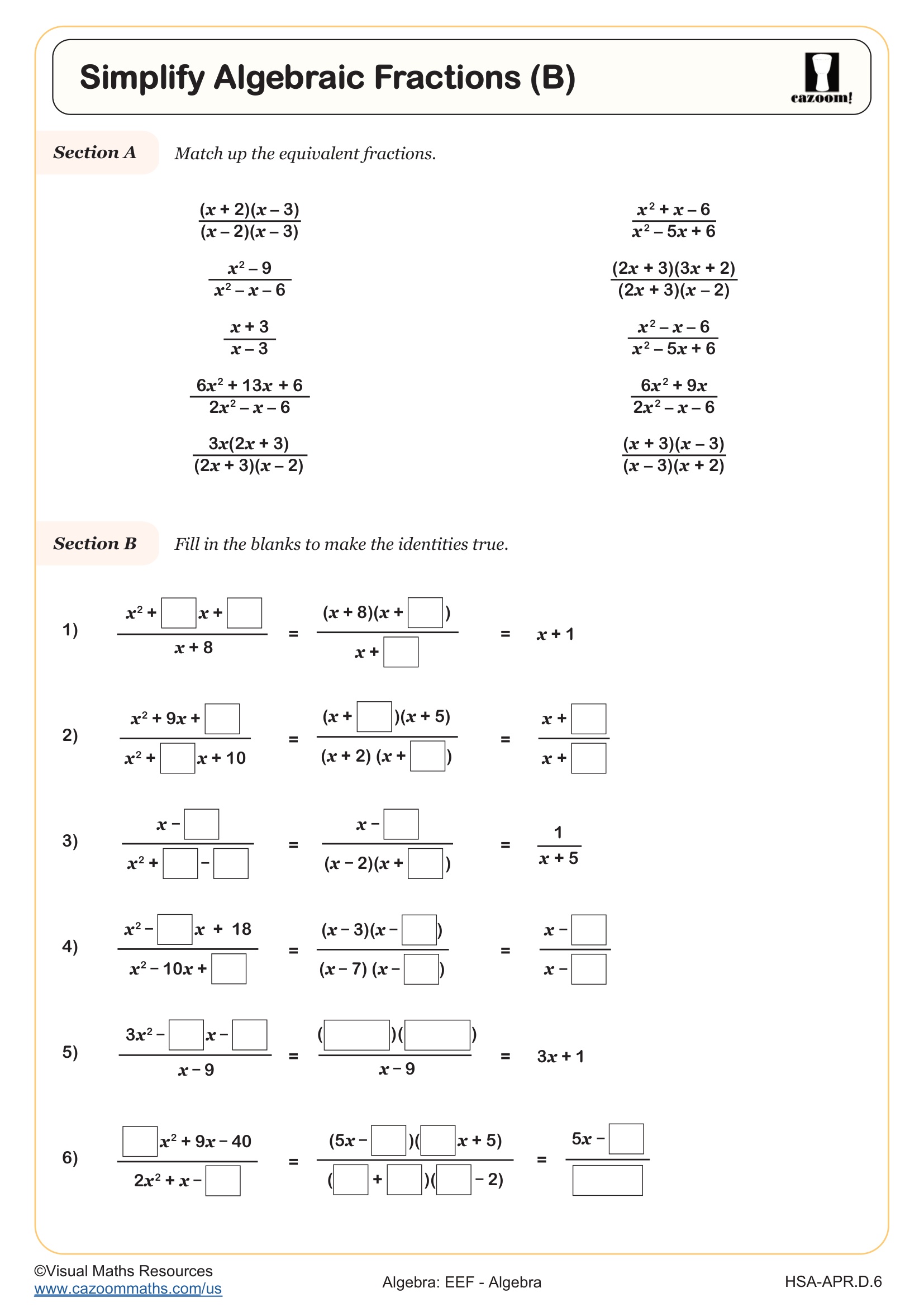
Simplifying Expressions by Combining Like Terms
Grades: Algebra I, IM 1
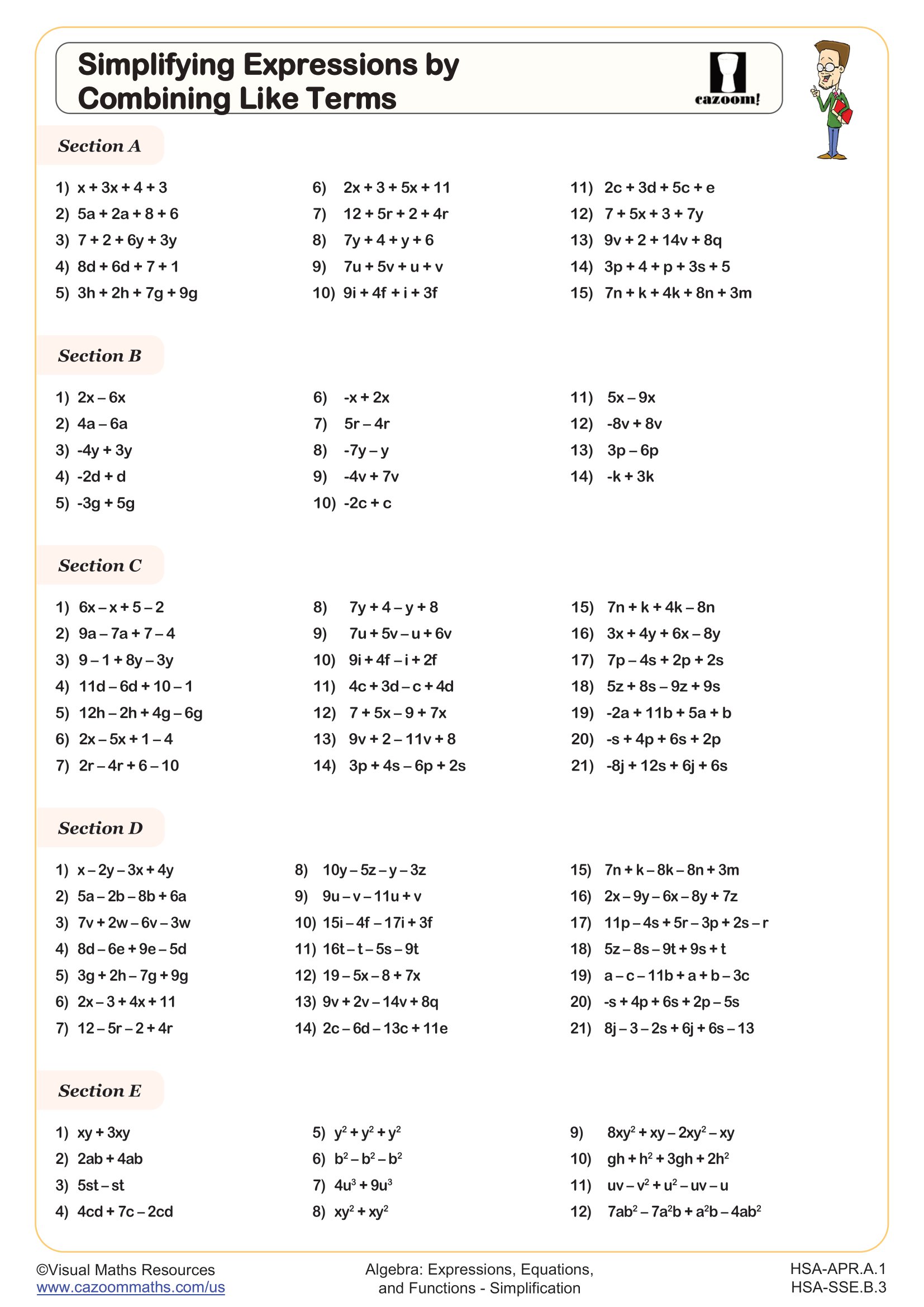
Translating Words to Expressions
Grades: Algebra I, IM 1
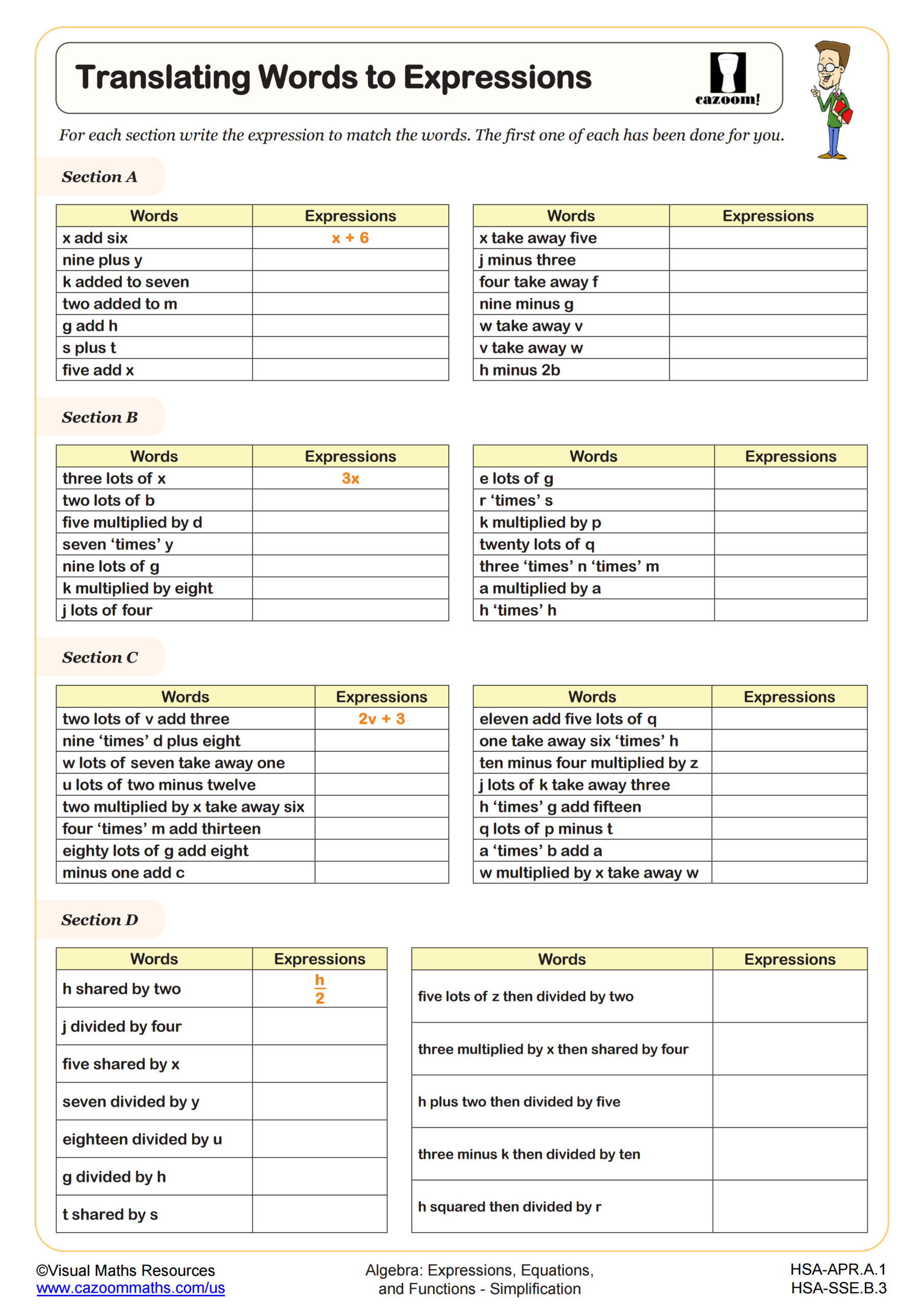
Writing Expressions: Thinking of a Number
Grades: Algebra I, IM 1
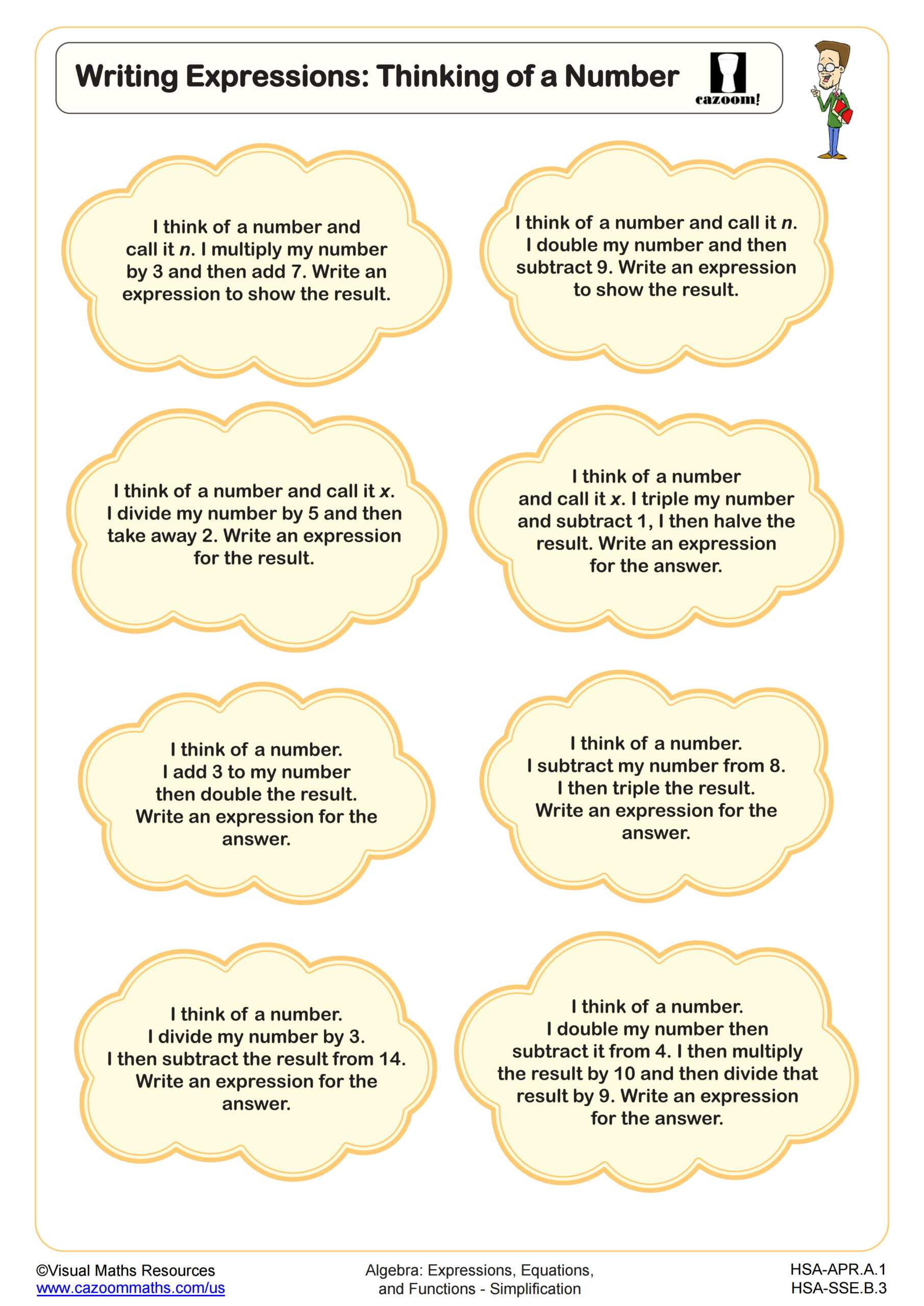
Multiply and Divide Algebraic Fractions (B)
Grades: Algebra II, IM 2
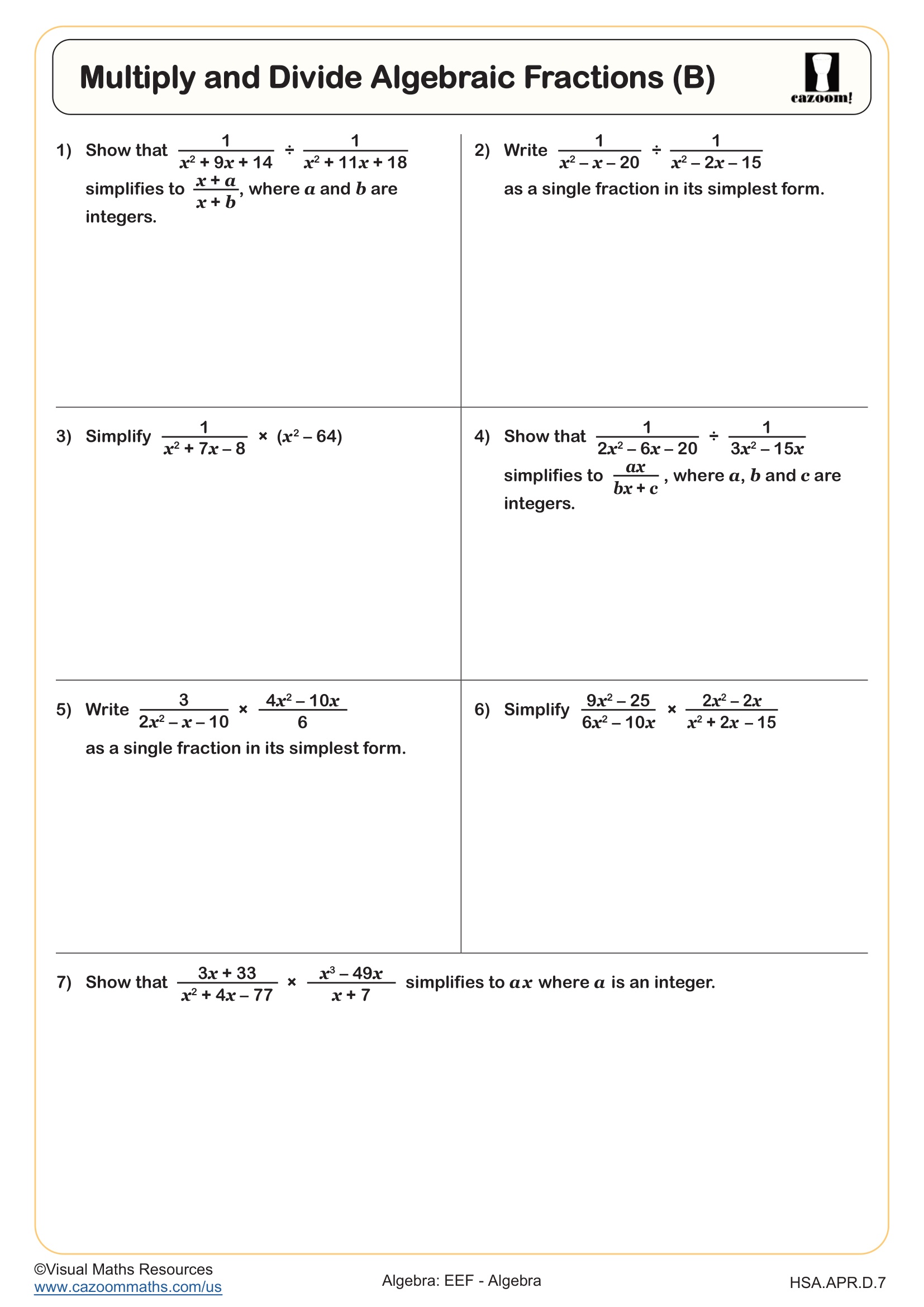
Simplifying Rational Expressions (A)
Grades: Algebra II, IM 2
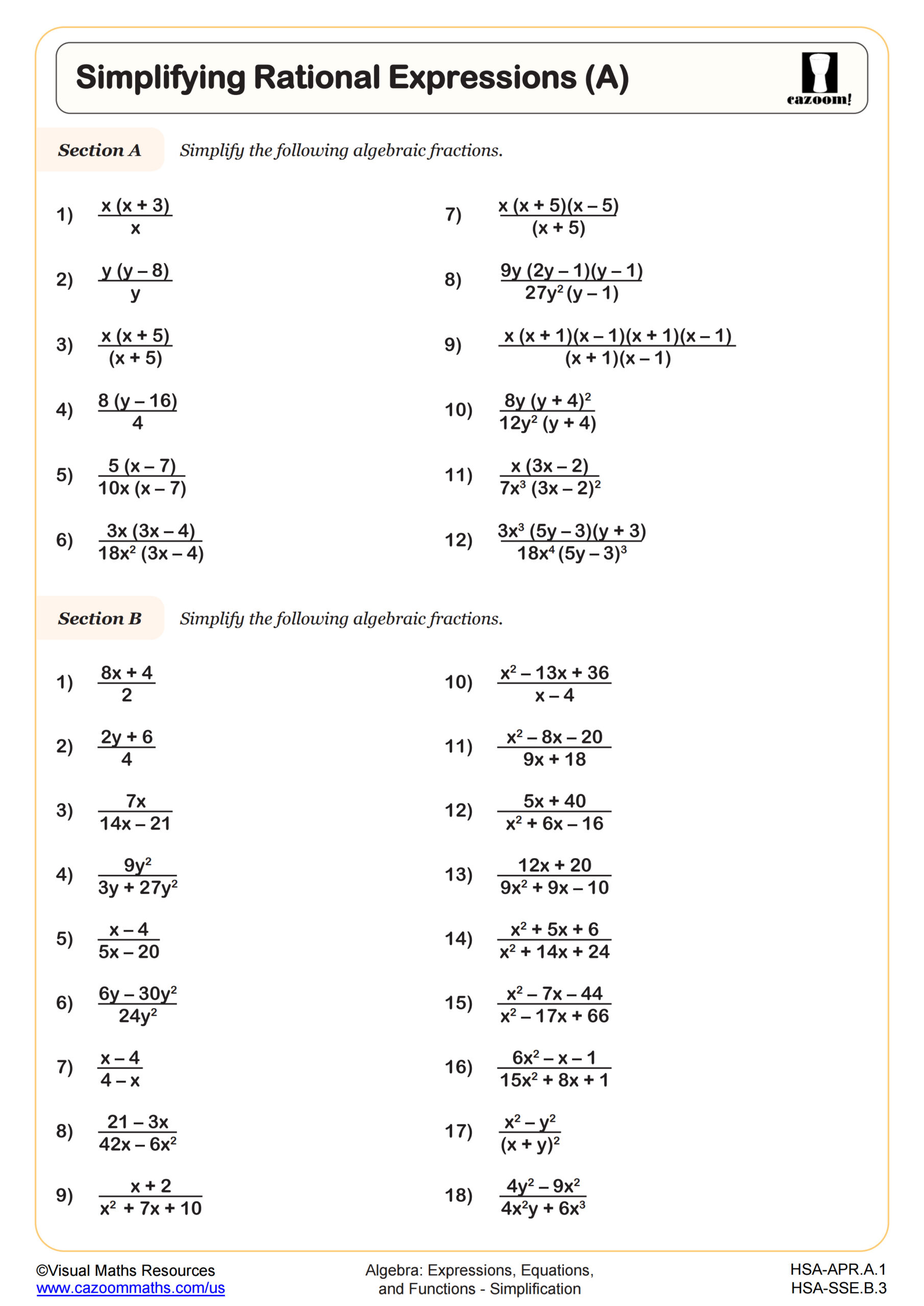
Simplifying Rational Expressions (B)
Grades: Algebra II, IM 2
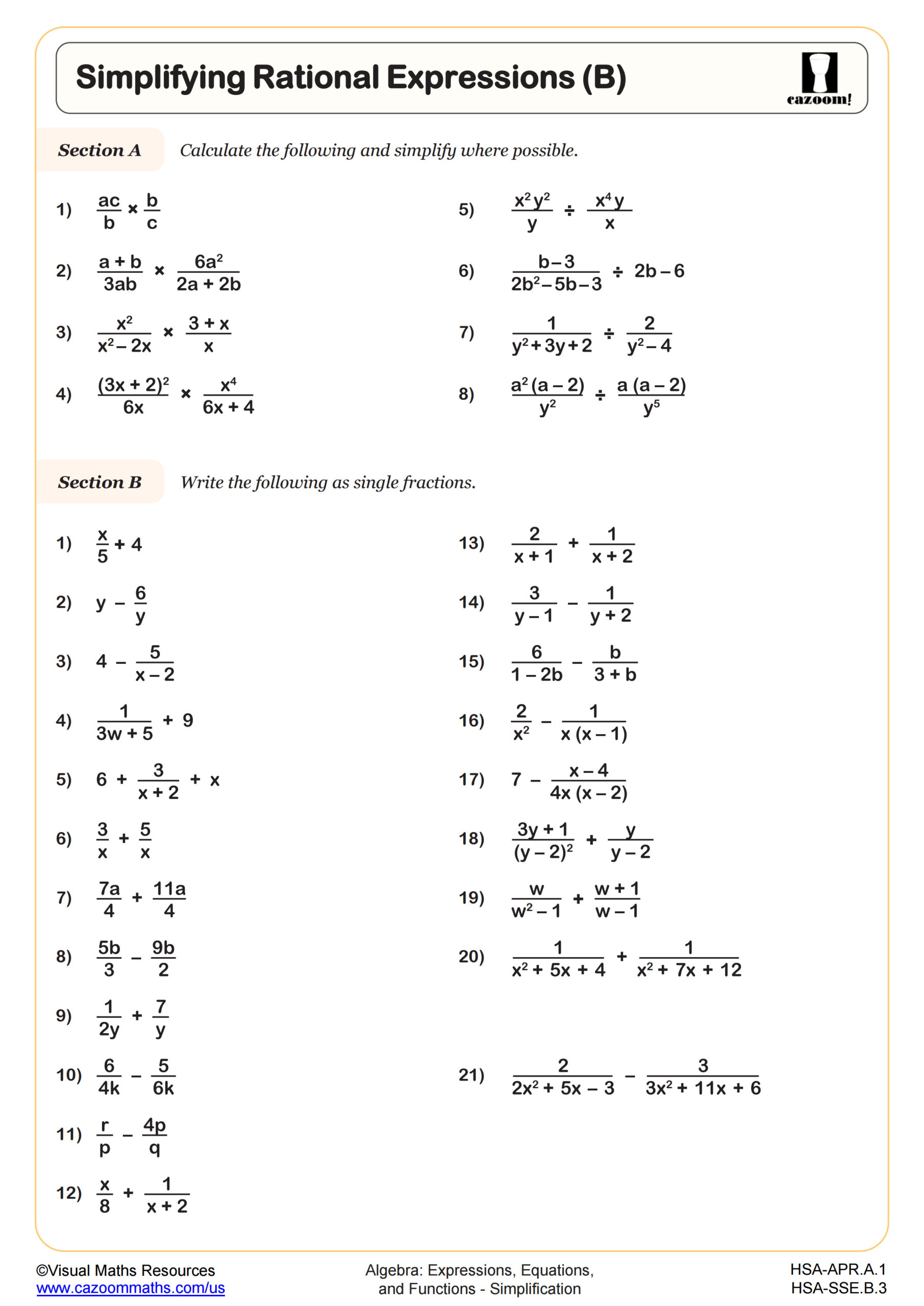
Printable Simplification Worksheets with Answers
Download our printable PDF simplification resources to give your students the push they need when learning different concepts of simplifying algebraic equations. Our math experts have specifically curated these resources in a way that your elementary, middle, and high school learners can master this concept using simple sums with clear and easy-to-understand instructions. Hence, our simplification math worksheets are great for building a sense of algebra and early problem-solving skills.
Why Learn Simplification?
Simplifying expressions is a core skill in algebra. It helps students rewrite expressions in shorter, clearer forms. This is useful in solving equations, graphing functions, and understanding how variables work together. Knowing how to simplify makes other math topics easier, such as factoring or solving inequalities. Practicing these skills helps learners develop accuracy and confidence. Our worksheets use simple examples and clear steps to help students succeed and feel comfortable with simplification.
Learn Different Ways to Simplify Expressions
Sequences are everywhere in daily life. We use them when planning budgets, building schedules, or tracking patterns like saving money each week. In science, technology, and coding, sequences help measure change and organize data. Learning to understand and use sequences prepares students for real-world math situations. These worksheets show how simple patterns can help solve real problems outside the classroom.
Combining Like Terms: Students learn how to group and combine terms with the same variables. This method helps reduce expressions to simpler forms and prepares students for solving equations.
Using the Distributive Property: These worksheets teach students how to expand brackets by multiplying terms across parentheses. This helps simplify and restructure expressions with clarity.
Removing Unnecessary Brackets: Students learn how to simplify expressions by eliminating extra brackets after applying operations. This step helps create cleaner and more readable expressions.
Avoiding Common Errors: Each worksheet highlights common mistakes, such as sign errors or misapplied rules. Students build awareness and improve accuracy by learning how to spot and fix these issues.
Simplifying with Integers and Coefficients
Students practice how to simplify expressions that involve both positive and negative numbers. These worksheets show how to manage signs, combine coefficients, and apply arithmetic rules. Step-by-step problems give students the tools to understand why simplification works. Working with integers helps prepare them for more advanced algebra, including equations and inequalities. By using formal methods, students can master simplification with confidence.
Simplify Expressions Using the Distributive Property
The distributive property is an essential part of simplifying expressions. These worksheets help students apply the property correctly, especially when working with brackets. They learn to multiply a number across terms inside the parentheses and then combine like terms. This builds a solid foundation for solving equations and factoring later on. Clear examples and guided practice ensure students understand each step of the process.
Real-World Practice with Simplification
Simplifying expressions isn’t just for the classroom. It’s used in budgeting, estimating, and breaking down large problems into smaller steps. Whether it’s adjusting a recipe or organizing data, the ability to simplify helps in many daily tasks. Our worksheets include real-world examples to make math feel meaningful. By practicing simplification regularly, students will be better prepared for algebra, standardized tests, and everyday problem solving.